power LIST



The founder of North Carolina Lawyers Weekly and Carolina Paralegal News has died.
David Blackwell, who was born in Stacy, N.C., on Oct. 18, 1939, died Nov. 27, according to his obituary.
Blackwell graduated from Hargrave Military Academy and the University of Carolina at Chapel Hill where he walked on the baseball team and earned his Law Degree, the obituary stated.
During his working years, his career path spanned many professions: lawyer, legislator, Superior Court Clerk, and executive director and lobbyist for the North Carolina Academy of Trial Lawyers, according to the obituary.
He ultimately settled down as publisher of North Carolina Lawyers Weekly, the obituary stated. Under Blackwell’s leadership, three Lawyers Weekly publications were established: North Carolina Lawyers Weekly, South Carolina Lawyers Weekly and Carolina Paralegal News.
While at Lawyers Weekly, his office door was always open, and he made sure to visit each of his employees and friends every day, the obituary stated. He not only hired people for their ability, but for their personalities and interests. David was very loyal to employees, quick with praise, and accepted responsibility for any shortcomings, according to the obituary.
Blackwell loved music and had a great singing voice, the obituary stated. Oftentimes one could catch him singing for himself or his son. He especially loved bluegrass; some of his favorite artists were Doc Watson, Tony Rice, and Ricky Skaggs, according to the obituary.
He was married to Elizabeth (Beth) Crouch Blackwell, and had one son, David Michael Blackwell Jr. in 1987.
Blackwell is predeceased by his mother, father, brother and sisters. He is survived by his brother Curtis, wife Beth, son David, daughter in-law Gina, many nieces, nephews and his many friends he made over his professional career, the obituary stated.

A celebration of life will be held in Wilmington, N.C., at Saint James Parrish on Saturday, Jan. 14, at 11 a.m.
Donations can be made in honor of David to a Pawsitive Mission ℅ Pawsability, www.paws-ability.org.
Staff report

Being
To our readers,
As we move to a new year, I am thrilled to share our plan for a new digital-first North Carolina Lawyers Weekly.
The coverage you’ve come to trust and rely on will continue through an enhanced daily digital plan and a new, more focused, beautiful magazine we will deliver monthly starting in January.
We will be posting articles and breaking news on nclawyersweekly.com throughout the day to provide you the most current information about the issues you care about. And we will provide regular features you rely on throughout the week like our opinion summaries. They will be posted on our site each Thursday with a link to the full opinions after each summary.
With our new monthly magazine, our respected legal reporters will provide in-depth coverage on relevant legal topics as well as added features like a profile and Q&A with leading figures in the legal community.
Daily news and updates will continue to be available on our website and through email.
You won’t miss any of the legal news you’re accustomed to receiving. In fact, we’ve enhanced not only the delivery plan but our coverage.
Let me know what you think. We take seriously your continued trust in us as your legal news source. These changes, we believe, enhance coverage and delivery in keeping you informed.
Thank you.
Liz Irwin, Executive Vice President – Media BridgeTower Media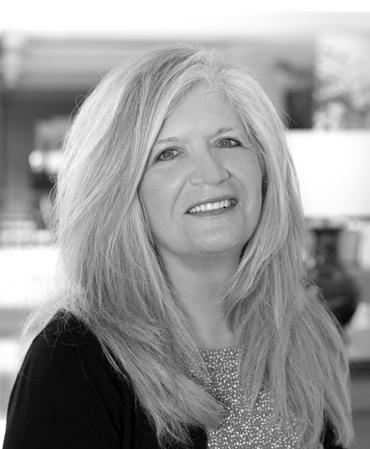
Attorney: Camille E. Hill
Location: Wake County
Bar membership: Since 2016
Disciplinary action: 1-year suspension
Background: Defendant was found guilty of accepting funds after leaving a firm. The defendant was an associate attorney at the Neumann Law Firm where she practiced family and criminal law. On July 9, 2020, the defendant gave Neumann Law Firm oral notice that she would be resigning her employment effective July 24, 2020, to accept a job at an insurance defense law firm.
At the end of December 2019, the defendant was working on a personal injury case (the ‘’Miracle case”). On June 18, 2020, the opposing insurance company in the Miracle case accepted a settlement demand that the defendant made on Miracle’s behalf.
On July 16, 2020, Defendant called Miracle and discussed referring Miracle’s case to an attorney at the Sheffron Law Firm as. Due to her new job, the defendant would not be handling that type of case. The defendant failed to inform Miracle that they could keep her case with the Neumann Law Firm. Before telling Miracle that her case needed to be referred to, the defendant did not consult with the Neumann Law Finn about who would be taking over her caseload or whether the firm would continue to be able to receive and disburse Miracle’s settlement check appropriately. The
defendant failed to promptly inform her client of any decision or circumstance which her client’s informed consent is required by the Rules of Professional Conduct in violation of Rule 1.4(a). By failing to obtain in writing Miracle’s agreement to the proposed division of attorney’s fees between herself, the Neumann Law Firm, and the Sheffron Law Firm, the defendant engaged in the improper division of fees between lawyers who are not in the same firm in violation of Rule 1.5(e).
The defendant also failed to explain a matter to the extent reasonably necessary to permit her client to make informed decisions regarding the representation in violation of Rule l.4(b) and engaged in conduct involving misrepresentation in violation of Rule 8.4(c). By making misrepresentations to the State Bar Investigator during the investigation and litigation the respondent engaged in conduct involving misrepresentation in violation of Rule 8.4(c). By individually making an agreement for and individually collecting a portion of the attorney fees from the Miracle case, despite not working on the case after July 16, 2020 when she was still working as an employee of the Neumann Law Finn, Defendant collected a clearly excessive fee, in violation of Rule l.5(a). Defendant was not entitled to any portion of the fee she retained in the Miracle matter, which was paid after Defendant left the Neumann Law Firm. Instead, the fee from the Miracle matter that Defendant retained belonged to the Neumann Law Firm.
Attorney: Kelly R. Routh
County: Mecklenburg County
Bar membership: Since 2011
Disciplinary action: 5-year suspension
Background: The defendant was found guilty of failing to properly maintain and disburse entrusted funds in violation of Rule l.15-2(a) and (n). The defendant was an associate attorney at a law firm where she was required to deliver all client funds to the billing administrator at her firm. At the time of mediation, the defendant owed her firm several thousand dollars in fees and expenses. By knowingly and willingly using the cash payments she received from her clients for her own benefit or for the benefit of
someone else, the defendant failed to properly maintain and disburse entrusted funds in violation of Rule 1. l 5-2(k) and committed a criminal act, embezzlement, that reflects adversely on her honesty, trustworthiness, or fitness as a lawyer in other respects in violation of Rule 8.4(b), and engaged in conduct involving dishonesty, fraud, deceit, or misrepresentation in violation of Rule 8.4(c).
Based on the foregoing Findings of Fact, Conclusions of Law, Findings of Fact Regarding Discipline, and Conclusions of Law Regarding Discipline, the Hearing Panel for the North Carolina State Bar has issued the defendant a 5-year suspension.
RALEIGH, N.C. (AP) — A panel asked by Gov. Roy Cooper to recommend changes to how governing boards of the University of North Carolina system and its member schools are chosen met for the first time last week.
The Commission on the Governance of Public Universities in North Carolina convened in Raleigh, with about a dozen of its 15 appointees participating. They include co-chairs Tom Ross and Margaret Spellings, two recent UNC system presidents.
Cooper, who unveiled the panel’s creation last month, stopped by the meeting shortly before the panel’s members were sworn in to reiterate its goals.
The Democratic governor said the UNC Board of Governors and trustee
boards for its 17 member schools need to better reflect the diversity of the state’s population when it comes to things like race, gender and political views.
The Republican-controlled General Assembly elects the 24 voting Board of Governors members. Just before Cooper took office in early 2017, the legislature took away the governor’s ability to appoint some campus trustee board members and gave those choices to legislative leaders.
Cooper would like a report next year, but the chances that recommendations will be implemented by the upcoming iteration of the General Assembly appear low. Republican legislative leaders have expressed little interest in overhauling the governing framework.
As reports show talent wars are threatening law firms, Shumaker has attracted and hired a dozen new attorneys to join its teams in Ohio, North Carolina, South Carolina, and Florida, a Shumaker news release stated.
“Despite stiff competition for legal talent, Shumaker is successfully recruiting some of the best and most promising attorneys in the nation,” said Tom Dillon, chairman of Shumaker’s Management Committee, in the release “This is a testament to the trusted Shumaker brand and reputation.”
“Our firm is experiencing new growth across several sectors, and we project demand for legal services to
remain strong in 2023,” said Jennifer Compton, Vice Chair of Shumaker’s Management Committee. “By adding to our team, we are ensuring our clients have access to top legal talent to help them grow their businesses.”
Shumaker made the following new hires in North Carolina and South Carolina:
Charlotte
Cameron Householder: Associate, Litigation and Disputes
Olivia C. Osburn: Associate, Health Law and Litigation and Disputes


Kevin R. Horton, Associate, Health Law and Litigation and Disputes
In August, Shumaker hired Colleen Miller as Director of Associate Recruitment to lead firm-wide associate recruitment and retention initiatives.
In August, Shumaker hired Colleen Miller as Director of Associate Recruitment to lead firm-wide associate recruitment and retention initiatives.
“Having a team dedicated and solely focused on recruitment and retention efforts is critical for the success of a company,” Miller said in the release. “Hiring a dozen attorneys is exciting momentum that we’ll continue to build upon in 2023.”
Founded in 1925, the Shumaker team of more than 300 lawyers and advisors is a provider of legal and legislative solutions. Shumaker has offices in Florida, Ohio, North Carolina, and South Carolina.
The North Carolina Justice Center announced the appointment of Reginald T. Shuford as its next executive director.
Shuford is from Wilmington, N.C., and is a graduate of UNCChapel Hill School of Law, according to a news release from the Justice Center. Since 2011, he has been the Executive Director of the ACLU of Pennsylvania.
“For 25 years, the NC Justice Center has served the people of North Carolina in an effort to improve the lives of its most vulnerable citizens,” said the Honorable Patricia Timmons-Goodson, co-chair of the NC Justice Center’s board of directors, in the release. “North Carolina is a better place to live because of our work. We are confident that the NC Justice Center’s next chapter under the leadership of Reggie Shuford will further strengthen our state.”
Under Shuford’s leadership from 2011 to 2022, the ACLU of Pennsylvania doubled its membership; more than doubled the size of its staff, with an emphasis on diversity and inclusion; and increased its annual budget from under $2 million to $6.6 million, according to the release.
During a tumultuous time in the state’s politics, the ACLU of Pennsylvania successfully litigated lawsuits to defeat a restrictive voter identification law in 2012 and to overturn the state’s Defense of Marriage Act in 2014, one year before the U.S. Supreme Court ruled on marriage equality. The organization also advocated and won in struggles
to narrow the scope of the criminal legal system. The ACLU of PA beat back efforts to expand mandatory minimum sentencing, advocated for policies that led the state’s prison system to decrease its population by 20%, and laid the groundwork that led to a gubernatorial moratorium on executions that started in 2015 and still stands today.
From 1995-2010, Shuford also served as senior staff counsel in the national ACLU’s racial justice program, the release stated.
“Since I left North Carolina in 1995, I have been privileged to do work at the national and state level advancing racial and social justice, including helping to pioneer racial profiling litigation, representing men assumed to be Arab or Muslim and denied passage on airlines in the aftermath of the 9/11 attacks, defeating voter ID legislation, and securing marriage equality in Pennsylvania well before it became the law of the land,” said Shuford in the release. “In the past few years, especially, I have felt compelled to return home to help fight for the full inclusion, equal opportunity, and first-class citizenship of all North Carolinians. I am honored to be joining the NC Justice Center, one of the state’s preeminent advocacy organizations, to do the vital work necessary to make that vision a reality.”
The Philadelphia Bar Association also honored him with the Justice Sonia Sotomayor Diversity Award and the Bar Star Award. Shuford has received UNC Law School’s Distinguished Alumnus Award and has served as a Harvard Law School Wasserstein Public Interest Fellow
and an Atlantic Fellow for Racial Equity.
“With more than 25 years of work in social justice advocacy, Shuford has the experience, vision, and commitment to service necessary to be an excellent leader of the NC Justice Center’s important efforts toward economic security and equity,” said Timmons-Goodson.
The North Carolina Justice Center Board of Directors has appointed
long-time NC Justice Center General Counsel and Senior Advisor Bill Rowe as the interim executive director, effective Jan. 1 through Feb. 12, 2023. Shuford’s appointment at the NC Justice Center will begin on Feb. 13, 2023.
Shuford’s appointment follows a nationwide search chaired by NC Justice Center board member the Honorable Leslie J. Winner and led by Isaacson, Miller.
Moore & Van Allen PLLC has announced that Jules W. Carter, an attorney in the firm’s Charlotte office, has been named to the 2022 Lawyers of Color Annual Hot List of early- to mid-career attorneys excelling in the legal profession. Lawyers of Color is a nonprofit devoted to promoting diversity in the legal profession and advancing democracy and equality in marginalized communities.
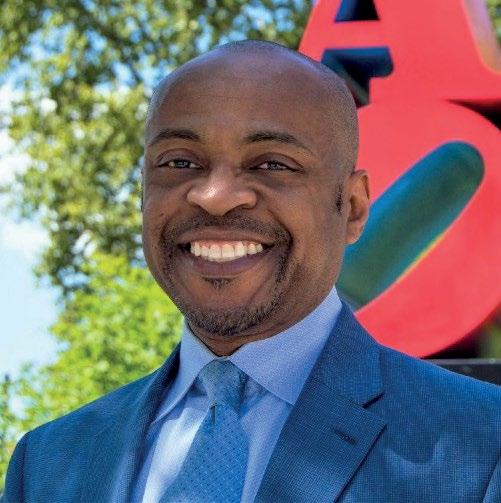

Carter will be profiled, along with other 2022 Hot List honorees, in the Lawyers of Color’s Hot List 2022 issue.
“Making the Lawyers of Color Annual Hot List is a prestigious and well-deserved honor for Jules,” said Thomas L. Mitchell, MVA’s managing partner and chair of the firm’s Management Committee, in a news release. “We are proud of Jules’ commitment to provide sophisticated litigation and regulatory services to our clients, and
grateful for her leadership as the chair of the firm’s Black Attorney Resource Group.”
Carter concentrates on financial regulatory compliance issues, helping clients navigate complex regulatory environments and pursue business strategies that balance innovation with risk-awareness. Additionally, she serves as the chair of the MVA Black Attorney Resource Group which supports the personal and professional development of Black lawyers. She also participates in several of the firm’s pro bono initiatives includ -
ing, the MVA Housing Rights Project, the MVA Human Trafficking Pro Bono Project, and oversees the MVA Pro Bono Policing Project.
The Lawyers of Color Annual Hot List recognizes in-house counsel, government attorneys, or law firm associates who have been lawyers for 10 years or less and who identify as Black, indigenous, or a person of color. Honorees were selected through nominations from mentors, peers, and colleagues, and research of legal publications to identify promising candidates.
INC.
INC.
INC. MEDIATION, INC. MEDIATION, INC. MEDIATION, INC.
MEDIATION, INC.
MEDIATION, INC. MEDIATION, INC. MEDIATION, INC. MEDIATION, INC. MEDIATION, INC. MEDIATION, INC. MEDIATION, INC.
A motorcyclist who was rear-ended by a vehicle has been awarded an $800,000 settlement.
The plaintiff was stopped behind a car on his Harley Davidson Sportster when he was rearended by the defendant. According to the plaintiff’s council, Thomas Kandler of Ricci Law Firm, the defendant was texting and driving at the time of impact.
Upon collision, the plaintiff was “smashed” between the car in front of him and the defendant’s vehicle, Kandler reported. The plaintiff suffered a broken tibia, two broken bones in his spine, and two broken ribs.
The plaintiff had moved to North Carolina from Arizona one month before the accident with his parents.
Is this a verdict or a settlement? Settlement
Type of case Motor vehicle wreck involving a motorcycle
Amount: $800,000.00
Injuries alleged: Broken tibia, two bones in spine, and two ribs. Tibia break required a titanium rod which later got infected. Second surgery scheduled to remove the rod and will require extensive physical therapy.
Court: New Hanover County
Date of verdict or settlement: 5/18/2022
Insurance carrier: Dairyland, Progressive, and State Farm Attorney(s) for plaintiff and their firm(s): Thomas Kandler- Ricci Law Firm
Was the opposing represented by counsel? No
Were liability and/or damages contested? No
Has the judgment been successfully collected? Yes
The defendant had a $30k policy which tendered early on. The plaintiff had a $50k North Carolina policy through Progressive. His parents had three $250k Arizona policies through State Farm.
There was a dispute regarding coverage on the Arizona policies, as Arizona allows intra-policy stacking but
only per insurance company. Kandler argued that, based on notice and minimum contacts with North Carolina, the policy should have been re-written under North Carolina law already and North Carolina law should apply.
Coverage was eventually resolved in favor of the plaintiff resulting in an $800,000.00 settlement.
RALEIGH — The North Carolina Administrative Office of the Courts has announced that Ragan R. Oakley has been named as the new assistant director for the NCAOC. Oakley will fill a vacancy left by David Hoke who is retiring after 21 years of service with the NCAOC.
“We thank David Hoke for his over two decades of service to the Judicial Branch and North Carolinians in his role as assistant director,” said Chief Justice Paul Newby said in a news release. “We look forward to working with Ms. Oakley and are confident she will provide the strong leadership necessary for the successful administration of our courts to ensure that justice is delivered without favor, denial, or delay.”
Oakley serves as assistant county attorney for Alamance County. Prior to her service in Alamance County, she worked with the North Carolina Business Court and served the Supreme Court of North Carolina first as a law clerk and then as legal counsel. Oakley graduated from Elon University School of Law and earned a bachelor of science degree in Human Services from Wingate University, graduating from both institutions with high honors.

NCAOC’s assistant director provides a broad range of services to the trial courts, including preparing and publishing an annual master calendar of superior courts which implements one of the nation’s most comprehensive systems of rotation for superior court judges. The assistant director oversees the court schedule of all superior court judges, commissioning changes, special sessions, and coordinates adjustments as necessary. The assistant director manages and utilizes emergency judges for both superior and district court in order to meet a variety of needs throughout the court system.
Appointed by the chief justice of the Supreme Court, the assistant director handles special projects for the chief justice in the exercise of his constitutional and statutory mission and his role as head of the Judicial Branch.
Other responsibilities include:
• Assigning court reporters to sessions of court
• Ensuring that all court proceedings have sufficient coverage
in order to produce a verbatim record
• Monitoring the judicial education requirements of all appellate, superior, and district court judges
• Assisting in the determination of exceptional and complex business case designations and assignments under Rules 2.1 and 2.2 of the General Rules of Practice
The North Carolina Judicial Branch is an equal and distinctively separate branch and core function of government. More than 7,000 Judicial Branch employees statewide administer justice in courthouses in North Carolina’s 100 counties.
The Judicial Branch budget for FY 2020–21 was $598.2 million, 89.2% of which is used to pay salaries and the remaining 10.8% is used for operations. The Judicial Branch receives only 2.44% of the overall State budget.
The North Carolina Administrative Office of the Courts (NCAOC) is the administrative agency for the North Carolina Judicial Branch, providing administrative services to help the North Carolina court system operate more efficiently and effectively, taking into account each courthouse’s diverse needs, caseloads, and available resources.
Staff report
RALEIGH, N.C. (AP) — The dayto-day administrator of the North Carolina Democratic Party for the past two election cycles has left the executive director’s post.
In an email to party leaders this weekend, Meredith Cuomo said she made the decision to leave the job before the November election.
At the request of party Chair Bobbie Richardson, Cuomo stayed on as a senior adviser starting Dec. 1 to help continue to guide the party until a new executive director is hired and settled, Cuomo wrote.
Cuomo, who was a party finance director before becoming executive director in 2019, cited in a Sunday social media post the need for more time with her family and sons.
Cuomo steps down after a mixed bag of election results last month for the party near the top of the ballot. Republican U.S. Rep. Ted Budd won the U.S. Senate race over Democrat Cheri Beasley, and GOP candidates swept all six appellate court seats.
But Democrats won two more U.S. House seats to earn a 7-7 split with Republicans in the state’s delega-
tion. And a massive effort to preserve Democratic Gov. Roy Cooper’s veto power resulted in House Republicans falling one seat short of a veto-proof majority.
“I’m proud of my team and the work we’ve done over the last few elections,” she wrote. “This work is never easy, but I will never regret fighting for North Carolina.” WRAL-TV first reported on Cuomo’s departure.
Lillian Taylor, the state party’s digital director, will serve as interim executive director, Cuomo said in her email.
■ PUBLISHER Liz Irwin lirwin@bridgetowermedia.com
■ INTERIM EDITOR Jason Thomas jthomas@scbiznews.com
■
EDITORIAL
Haviland Stewart, Reporter hstewart@nclawyersweekly.com
Scott Baughman, Digital Media Manager sbaughman@mecktimes.com
■
ADVERTISING
Sheila Batie-Jones, Advertising Account Executive sbatie-jones@sclawyersweekly.com
■ ACCOUNTING & ADMINISTRATIVE
Michael McArthur, Business Manager mmcarthur@bridgetowermedia.com
■ CIRCULATION
Disa Ehrler, Audience Development Manager dehrler@bridgetowermedia.com Circulation: 1-877-615-9536 service@bridgetowermedia.com
■
PRODUCTION & OPERATIONS
Bradley Redmond, Director of Production

John Reno, Production Specialist
Corey Edwards, Production Specialist
©2022 BridgeTower Media. Material published in North Carolina Lawyers Weekly is compiled at substantial expense and is for the sole and exclusive use of purchasers and subscribers. The material may not be republished, resold, recorded, or used in any manner, in whole or in part, without the publisher’s explicit consent. Any infringement will be subject to legal redress.
Established 1988 919-829-9333 • 1-800-876-5297
Charlotte office: 130 North McDowell Street, Unit B, Charlotte, NC 28204 (704) 377-6221 • (704) 377-4258 fax: www.nclawyersweekly.com
For subscription questions 1-877-615-9536 service@bridgetowermedia.com
North Carolina Lawyers Weekly [ISSN10411747] [USPS 002-904] is published biweekly every other Monday with General Statewide Circulation for $410.36 per year by North Carolina Lawyers Weekly, 130 North McDowell Street, Unit B, Charlotte, NC 28204
Periodicals postage paid at Charlotte, North Carolina 28228-9998.
POSTMASTER: Electronic Service Requested.
Send address changes to: North Carolina Lawyers Weekly, Subscription Services, P.O. Box 1051, Williamsport, PA, 17703-9940
North Carolina Lawyers Weekly is a publication of BridgeTower Media, 222 South Ninth Street, Suite 900, Minneapolis, MN 55402.
"Helping lawyers practice better, more efficiently, and more profitably."Tommy Kandler Ragan R. Oakley


Because of his prior South Carolina convictions, defendant was sentenced as a career offender. One of those convictions was under a South Carolina statute that encompasses both simple possession and more serious drug offenses; nevertheless, defendant’s sentencing sheet shows that he pled guilty to possession “w.i.t.d.” or possession with intent to distribute, which counts as a controlled substance offense under the United States Sentencing Guidelines.



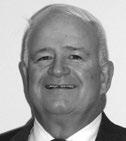



We affirm defendant’s sentence as a career offender.
In his opening brief, defendant failed to argue that his South Carolina conviction for assault with intent to kill should not be counted toward career offender status because the conviction could have been based on reckless conduct. After Borden v. United States, 141 S. Ct. 1817 (2021), was decided, defendant relied on Borden to make that previously omitted
argument. However, before defendant filed his opening brief, this court had already reached the conclusion that Borden would later adopt. Since this argument was available to defendant when he filed his opening brief, his choice not to pursue the argument waived it for appellate review.

(Harris, J.) Defendant was charged with marijuana possession under the broad statute S.C. Code Ann. § 44-53370(b)(2). To be sure, the sentencing sheet says the offense was “w.i.t.d.,” which doubtless stands, as the district court found, for “with intent to distribute.” But the sentencing sheet also says “Manuf.,” though nobody believes defendant pleaded guilty to a manufacturing charge; and the only controlled substance specifically mentioned is not marijuana but “flunitrazepam or analogue.”

The problem in this case is not that the sentencing sheet does not describe defendant’s conviction with sufficient specificity; it is that it does not describe his conviction at all.
The most obvious reading of the sentencing sheet tells us nothing about the particular nature of defen-





dant’s conviction except that it was for a first violation of some part of § 4453-370(b)(2). And because some but not all parts of that statute qualify as “controlled substance offenses” under the Guidelines, that is not enough to establish that defendant’s conviction is a valid Guidelines predicate.
I would vacate defendant’s sentence and remand for resentencing without career offender enhancement.
United States v. Boyd (Lawyers Weekly No. 001-116-22, 22 pp.) (Allison Jones Rushing, J.) (Pamela Harris, J., dissenting) No. 18-4883. Appealed from USDC at Columbia, S.C. (Terry Wooten, S.J.) Daniel Charles Leonardi for appellant; Leesa Washington, Lance Crick and Rhett DeHart for appellee. 4th Cir.

Lying to the FBI – 2 Lies/Single Interview – Multiplicitous Counts
Where defendant told two lies during a single interview with the FBI, defendant was only guilty of one count of lying to the FBI in vio-


lation of 18 U.S.C. § 1001(a)(2). We vacate one of the two convictions under § 1001(a)(2) and remand for resentencing. We affirm defendant’s remaining conviction.
Defendant had previously traveled to Syria in 2006. In 2014, he told an FBI informant that he wanted to return to Syria to help defend a family he had once visited.
When the informant asked defendant if he wanted to join ISIS, defendant responded with the Arabic terms “inshallah” and “na’am.” The informant – who is fluent in Arabic – testified that these were affirmations.
In 2015, the informant asked defendant to get a “buddy pass” for Mohamed Hilal, a fictitious person the FBI had invented. The informant told defendant that Hilal was important to ISIS and planning to travel to Syria. Using another person’s credit card and with the help of his then girlfriend (now wife) – who worked for an airline – de-
fendant obtained the buddy pass. After the buddy pass went unused, defendant cut off all contact with the informant.
In 2016, a subpoena was issued for defendant’s wife. Defendant called the FBI and agreed to visit the FBI’s office to explain the circumstances surrounding the buddy pass.
During defendant’s FBI interview, agent Ronald Godfrey asked defendant whether he had talked to anyone about going to Syria, joining ISIS and fighting. Defendant responded in the negative to each question.
Godfrey warned defendant that he could get in trouble for lying to the FBI, providing a copy of § 1001, but defendant stood firm that he never had any plan or intent to go to Syria.
Godfrey then asked defendant if he knew that Hilal “was planning to use the buddy pass” to travel to Syria and join ISIS. Defendant said he didn’t know what Hilal had in his mind or what his plans were.
Defendant was charged with one count of lying to the FBI based on his responses to questions about going to Syria and joining ISIS. He was charged with a second count based on his responses to Godfrey’s buddy pass questions. He was convicted of both counts.
Defendant maintains that both of the alleged false statements were made in the same interview
and so comprise only one violation of § 1001.
We must decide what Congress has made the allowable unit of prosecution. Because we find that Congress’s intent concerning § 1001(a)(2)’s unit of prosecution is ambiguous, we must apply the rule of lenity and find Count Two multiplicitous.
Section 1001(a)(2) prohibits “any materially false, fictitious, or fraudulent statement or representation.” When previously confronted with similar statutory language, we have found Congress’s intent ambiguous.
In 1996, Congress amended § 1001(a)(2), which covered “any . . . statements or representations” to instead cover “any . . . statement or representation.” This revision fails to explain Congress’s intent regarding the unit of prosecution.
While Congress’s revision supports a finding that the statute is broad enough to encompass a single interview that only included one false statement, it does little to show that Congress unambiguously intended the unit of prosecution to be each individual statement made during one interview. Instead, the statute remains ambiguous because one could easily interpret § 1001(a)(2)’s unit of prosecution as one single interview or form. Under this view, the statute could be interpreted as characterizing defendant’s entire interview as a “statement or representation,” sufficient to support one count of making a false statement in violation of § 1001(a)(2).
We apply the rule of lenity and reverse the district court’s denial of defendant’s motion to dismiss Count Two.
Because Agent Godfrey’s questions were imprecisely worded, defendant contends he is entitled to the literal-truth defense. Although the questions could have been more carefully worded, defendant’s response to the second question is enough to support falsity. When Godfrey asked whether defendant had ever “talked with anyone that [he] wanted to go to Syria and join ISIS,” defendant replied, “No, we’ve talked – I talk to numerous – you have to understand the Muslim community. There’s so much stuff going on now in the Muslim community with everything.”
Defendant answered Godfrey’s second question, “No.” The rest of his response, even if true, doesn’t retract his initial denial. A rational jury could thus find defendant falsely denied discussing his desire to travel to Syria.
Although defendant responded to the informant’s direct questions in Arabic, defendant made enough statements to the informant in English to allow the jury to find that he was planning to go to Syria.
Even if the FBI immediately knew that defendant’s statements were false, the statements were still material, given that defendant’s statements, if believed, were capable of influencing the direction of the investigation.
Defendant is not entitled to a literal-truth defense with respect to his statements regarding the plans of the fictitious person, Hilal, either. Godfrey asked defendant whether he “knew” that Hilal was planning to use the buddy pass to travel to Syria and join ISIS. A reasonable jury could decide, upon hearing the full interview, that Godfrey’s question went to defendant’s subjective understanding of Hilal’s intentions, rather than an awareness of the objective truth of those plans.
Defendant unsuccessfully sought a jury instruction on entrapment, arguing that the government had induced him to lie to FBI agents by serving his wife with a subpoena. However, Godfrey warned defendant that lying to the FBI was a crime, and he gave defendant a copy of § 1001. The FBI’s repeated efforts to ensure defendant told the truth belie any claim that agents coaxed him into lying.
Affirmed in part, reversed in part, vacated and remanded for resentencing.
(Heytens, J.) I write separately to note that defendant may have been able to establish a valid entrapment defense under a different theory—and to caution that similar government conduct may not be countenanced in future cases.
The government’s informant told defendant not to tell anyone about their conversations about ISIS. It might have been argued that by having one government agent (an undisclosed confidential informant) raise the topic of ISIS and urge defendant not to disclose those conversations to anyone, and then having another set of government agents (the FBI) ask
defendant about those very same conversations, the government “originate[d] a criminal design” and “implant[ed] in an innocent person’s mind the disposition to commit a criminal act.”
Since defendant did not make this argument, I concur in the court’s decision rejecting the argument defendant did make.
(Diaz, J.) After the 1996 amendment to § 1001, each nonidentical statement or representation (not each interview) is the unit of prosecution. Count Two was not multiplicitous.
United States v. Smith (Lawyers Weekly No. 001-117-22, 40 pp.) (Per Curiam) (Toby Heytens, J., concurring) (Albert Diaz, J., dissenting) No. 20-4414. Appealed from USDC at Charlotte, N.C. (Max Cogburn, J.) James Walter Kilbourne, Allie Jordan Hallmark and Charles Swift for appellant; Amy Elizabeth Ray and William Stetzer for appellee. 4th Cir.
Municipal – Real Property – Nonconforming Use – Short-Term Rental –Ambiguous Ordinances
Although the respondent-Town had an enacted ordinance in 1984 to regulate “tourist homes and other temporary residences renting by the day or week” and amended the ordinance in 2000 to regulate rentals for “less than 28 consecutive days,” the Town expressly recognized the confusion caused by its ordinance when it enacted another amendment in 2019, which more clearly regulated short-term rentals. Given the ambiguity in the pre-2019 ordinance, we construe the ordinance in favor of the free use of real property, and we agree with the superior court that petitioner’s use of his property for short-term rentals is grandfathered as a nonconforming use under the 2019 ordinance.
We affirm the superior court’s order overturning the Town’s decision, which denied petitioner’s appeal of a final notice of violation (NOV) for operating a short-term rental property in violation of a town ordinance.

Section 1.620 of the Town’s 1984 Land Use Ordinance established the use category “Tourist homes and other temporary residences renting by the day or week” in the Town’s Table of Permissible Uses and restricted its use to non-residential zoning districts. The Town amended its Ordinances in 2000, establishing a short-term rental overlay district in multi-family residential districts and defining “short-term rental of a dwelling unit” as the “rental, lease, or use of an attached or detached residential dwelling unit that is less than 28 consecutive days,” without adding this newly defined use or eliminating the use “temporary residences renting by the day or week” from the Town’s Table of Permissible Uses.
In 2019, the Town enacted yet another amendment, setting out explicit goals including “1. To clearly define short-term rental so everyone understands what is and is not allowed; 2. To clearly identify where short-term rentals are permitted; . . . 10. To communicate transparently
with 3rd party rental listing companies.”


It is apparent from the plain language of the 2019 amendment that a lack of clarity and transparency existed and was known to exist with respect to the Town’s regulation of short-term rentals between the 2000 amendment and the 2019 amendment.
We will not construe “short-term rentals,” as defined by the 2000 amendment, to be impliedly prohibited by cross-reference to a less definite, albeit related, land use category. In the event of doubts or ambiguity, zoning regulations are to be construed in favor of the free use of property.
The ambiguity present here flows from the Town’s ineffective attempt to simultaneously prohibit two distinct land uses, where only one use was lawfully prohibited by the Town’s Table of Permissible Uses—not from either land use category being independently and sufficiently ambiguous on its face. The superior court properly recognized that this ambiguity left the Town’s purported regulation of short-term rentals between 2000 and2019 in a state of uncertainty, which in turn, left the rights of landowners to the unguided discretion of the board of adjustment (BOA).
When the 2019 amendment took effect, replacing “temporary residences renting by the day or week” with the previously defined “shortterm rental of a dwelling unit” in the Town’s Table of Permissible
Uses, the Town achieved the goals of the 2019 amendment by properly regulating “short-term rentals of less than 28 days” for the first time. Accordingly, the superior court did not err by concluding the Town’s ordinances existing prior to 13 August 2019 did not properly regulate short-term rentals of less than 28 days.
Section 16-8.1 of the Town’s 1984 Land Use Ordinance provides in relevant part, “nonconforming situations that were otherwise lawful on the effective date of this chapter may be continued[.]”
Here, the effective date, within the meaning of § 16-8.1, is the date of the 2019 Amendment, 13 August 2019, as properly determined by the BOA. Petitioner was twice cited by the Town for violating the Town’s purported ban on shortterm rentals, once before and once after the 2019 Amendment. The record is clear that the alleged violation in each instance was specific to the Town’s proscription against “short-term rentals of less than 28 days.” In neither instance did the Town cite petitioner for violating the Town’s regulation of “temporary residences renting by the day or week.” Accordingly, the question of whether petitioner’s property use violated the Town’s regulation of “temporary residences renting by the day or week” was neither a contested fact between the parties nor the standard applicable to this case.
Thus, the BOA erred and exceeded its quasi-judicial authority to determine contested facts upon applicable standards by mischarac-

terizing the nature of petitioner’s property use, implicating a land use category he was not cited for violating, to attain a particular outcome. By denying petitioner’s claim pursuant to the “otherwise lawful” provision of § 16-8.1 of the Town’s 1984 Land Use Ordinances—a standard not implicated by the NOV—the BOA erred and exceeded its quasijudicial authority conferred by statute.
Therefore, the superior court properly concluded the BOA had erred by concluding petitioner’s short-term rental use was not “otherwise lawful” under the local ordinance through its improper reference to an inapplicable standard.
Affirmed.
Frazier v. Town of Blowing Rock (Lawyers Weekly No. 011-201-22, 18 pp.) (Jeffery Carpenter, J.) Appealed from Watauga County Superior Court (Gary Gavenus, J.) Bryan Martin for respondent; David Pokela for petitioner. 2022-NCCOA-782
This case arises out of the defendant-ex-boyfriend’s receipt of assets from the intestate decedent’s estate. Although the trial court did not abuse its discretion in granting the motion for a new trial on the issue of damages filed by plaintiff, the decedent’s son and sole heir, the trial court lacked the authority to unilat-
erally amend the amount of damages awarded by the jury. It is true that the parties stipulated to the amount of money that defendant received from insurance commissions payable to the decedent’s designated beneficiary (plaintiff); however, this was not a stipulation as to the amount of damages. Had the stipulation been to damages, there would have been no need to ask the jury to determine damages.
We affirm the trial court’s order granting plaintiff’s motion for a new trial but vacate the order amending the jury verdict and remand the case for a new trial as to the amount of damages only. Furthermore, we vacate the order granting summary judgment on defendant’s unjust enrichment claim to the extent that defendant used his own personal assets to pay expenses on plaintiff’s property but affirm the orders and judgments in all other respects.
Shortly after the decedent’s death, defendant had the then 21-year-old plaintiff sign an agreement purporting to assign to defendant certain assets from the decedent’s estate. Defendant unsuccessfully sought a jury instruction on the duty to read an instrument.
The duty to read an instrument or to have it read before signing it is a positive one, and the failure to do so, in the absence of any mistake, fraud, or oppression, is a circumstance against which no relief may be had. Here, fraud was at issue because one of plaintiff’s claims was for actual fraud based on defen-
The insider’s guide to selling a law practice, transferring ownership, and designing a great Life After Law, written by two of the top authorities in succession planning.
Practical. Readable. Motivating. “Designing a Succession Plan” is an invaluable resource and planning guide. Solo and small firm partners will be especially interested in the sections on valuing and selling a law firm. All lawyers will appreciate the practical, expert advice outlining the options that await lawyers in this next phase.
 — Joan H. Feldman, Editor/Publisher, Attorney at Work
— Joan H. Feldman, Editor/Publisher, Attorney at Work
dant’s misrepresentation of the contents of the agreement. Accordingly, the duty to read instruction was improper, and the trial court did not abuse its discretion by refusing to provide it.
In any event, the agreement was without consideration because there was no bargained-for exchange. The agreement specifically granted defendant the decedent’s residence, her car, and the commissions due from her employer, but provides nothing to plaintiff other than the life insurance policy to which he was already entitled. Therefore, there could be no bargained for exchange on the part of plaintiff because there was no reciprocity of inducements. Accordingly, we affirm the trial court’s granting of plaintiff’s motion for summary judgment, which dismissed defendant’s breach of contract claim, because there was no genuine issue of fact as to consideration.
Although any claim against the estate is barred by the statute of limitations, there is a genuine issue of material fact as to whether plaintiff individually was unjustly enriched by some payments defendant made towards the decedent’s residence and vehicle. Defendant specifically alleged that these payments were “not gratuitously” made. Furthermore, these payments conferred a benefit to plaintiff, who was the owner of, and resided in, the house which he inherited from his mother while defendant made these payments, and these payments are readily measurable.
However, there is also evidence in the form of an admission by defendant that he used assets from an account of a non-party to make certain of these payments, and he would therefore not be entitled to recover those payments in a claim for unjust enrichment. Accordingly, to the extent that defendant can show that he made payments from his individual assets for the benefit of plaintiff’s property, summary judgment was improper with respect to defendant’s unjust enrichment claim and is hereby vacated.
Affirmed in part, vacated in part and remanded.
Davis v. Woods (Lawyers Weekly No. 011-202-22, 28 pp.) (John Arrowood, J.) Appealed from Cabarrus County Superior Court (Stephen Futrell & Lora Cubbage, JJ.) Elliot Aus and Chad Archer for plaintiff; Donna Savage for defendant. 2022-NCCOA-780
Parent & Child – Custody – Appeals – Confidential Information – Rule 42 Loophole
Because the plaintiff-Mother’s allegations of sexual abuse were not substantiated, the records of the investigation were not automatically sealed under N.C. R. App. 42. Nevertheless, the public dissemination of sensitive information in the investigatory and medical records of the minor child may be no less harmful to the child where the allegations of sexual abuse were unfounded than if they were grounded in fact. Despite this loophole in Rule 42, we encourage parents, trial courts, and counsel involved in child custody proceedings to be keenly aware of the need to protect the confidentiality of minor children who are the innocent and unfortunate victims of disputes
between their parents or caregivers. Unless the record, or portions of the record, is sealed, all the information in records filed with the Court of Appeals is available online and disclosure of this sort of personal information of a minor child can result in direct harm to the minor child.
This court has sua sponte sealed the record to protect the personal identifying information and confidential medical information of the child to the extent we can. We affirm the trial court’s grant of sole custody to the defendant-Father and visitation to Mother.
Mother challenges only the trial court’s determination that it is in the best interest of the parties’ child that Father have sole custody. However, the unchallenged – and therefore binding – findings of fact establish Mother reported Father’s wife had allowed the child to be sexually abused, but DSS found “no evidence of abuse”; the child’s therapist testified “she had no concerns” regarding the child being cared for while in Father’s custody; and Mother repeatedly interfered when a social worker attempted to interview the child. Ultimately, the child said that “she had lied [about having been sexually abused] because her mother had told her to lie.” Further, the trial court found the parents were not able to jointly co-parent the child. Based upon the unchallenged findings of fact, we cannot determine the trial court’s decision to grant Father sole legal and physical custody was manifestly unsupported by reason.
Frazier v. Frazier (Lawyers Weekly No. 011-203-22, 8 pp.) (Donna Stroud, C.J.) Appealed from Nash County District Court (Wayne Boyette, J.) John Moss for plaintiff; Richard Hamlett for defendant. 2022-NCCOA-781
When deciding whether newborn “Oscar” was neglected, the trial court could take into account the respondent-parents’ actions that resulted in the neglect adjudication of Oscar’s older sibling. In any event, the record shows respondents’ inability to properly care for Oscar based on their behavior while Oscar was in the NICU: despite repeated instruction by hospital staff, respondents failed to feed Oscar on schedule; had difficulty preparing his formula or determining how much he had consumed; left inappropriate items in his bassinet; failed to swaddle him properly; were unable to properly diaper him, and, on more than one occasion, left him soiled and hungry.
We affirm the adjudication of neglect.
We have previously affirmed a neglect adjudication of a newborn child who was in the hospital when the petition was filed. Accordingly, here, we reject any contention from respondents that the trial court must wait for Oscar to be discharged from the hospital and returned home before it may adjudicate Oscar neglected.
In re M.C. (Lawyers Weekly
No. 011-204-22, 27 pp.) (Hunter Murphy, J.) Appealed from Onslow County District Court (Sarah Seaton, J.) Lauren Vaughan for petitioner; Peter Wood and Thomas Diepenbrock for respondents; Matthew Wunsche, for guardian ad litem. 2022-NCCOA-786
The trial court’s findings that “reunification clearly would be unsuccessful [and] futile” and that reunification “may be possible within the next six months,” are materially contradictory. Reunification cannot be both futile and possible. This contradiction amounts to more than a mere clerical error and cannot be reconciled in order to relieve DSS of reunification efforts.
We vacate the trial court’s order relieving DSS of reunification efforts and remand for further proceedings.
We also agree with respondentMother’s contention that decree 8 of the trial court’s order is contradictory at this stage of the proceedings. The trial court ordered Mother to undergo a psychological evaluation that includes a parental capacity assessment. Mother has been working with DSS for four years and has undergone mental health evaluations. This evaluation specifically would have Mother also complete a “parental capacity assessment.” Such an evaluation would be unnecessary if reunification were no longer a goal.
Vacated and remanded.
(Carpenter, J.) The finding that the respondent-parents might regain legal custody within six months is unsupported by the evidence. Moreover, the grant of legal custody to the juvenile’s parents, while physical custody remains with DSS or another placement, is not a disposition authorized under G.S. § 7B-906.1, nor is it an alternative disposition allowed under G.S. § 7B903. The trial court erred in making two findings, which taken together, support a disposition not permitted by statute.
Nevertheless, the remainder of the trial court’s findings support its order ceasing reunification efforts. The record resolves the conflict because finding of fact 52 is not supported by competent evidence and is inconsistent with numerous other findings made by the trial court. It is clear the trial court did not intend to consider granting respondentparents legal custody of T.D.N. within the next six months where the remaining findings support the cessation of reunification efforts and where the trial court found respondents could not obtain physical custody of T.D.N. in the next six months.
Moreover, at the conclusion of the 11 August 2021 permanency planning hearing, the trial court orally announced extensive findings, supporting its decision to cease reunification efforts. The trial court noted it had “some serious concerns in th[e] matter,” and made specific findings relating to Mother’s actions during the pendency of the case, including “her attempts to sabotage placement” and her making false reports concerning T.D.N.’s welfare. It also made findings regarding respondents’ non-compliance with
their case plans.
The trial court expressly found legal and physical custody would remain with DSS. Contrary to written finding of fact 52, the trial court did not find at the hearing that T.D.N. may be returned to respondents within the next six months. Therefore, I conclude finding of fact 52 is unsupported by competent evidence in the record.
In addition, the trial court’s written order is silent as to whether T.D.N.’s best interests require Mother to complete a psychological evaluation. Therefore, the trial court did not fulfill the statutory requirement of G.S. § 7B-904(c). Accordingly, I would vacate decree 8. In re T.D.N. (Lawyers Weekly No. 011-205-22, 24 pp.) (April Wood, J.) (Jeffery Carpenter, J., concurring in part & dissenting in part) Appealed from Brunswick County District Court (Pauline Hankins, J.) Mark Hayes for respondent; Jane Thompson for petitioner; Michelle FormyDuval Lynch for guardian ad litem. 2022-NCCOA-787
Parent & Child – Neglect & Dependency Adjudication – Findings of Fact – Petition Allegations
Even though the trial court’s findings mirror those in the petition, there are enough findings which are supported by the evidence to uphold the trial court’s adjudication of “Jason” as neglected and dependent. Because we are confident that the trial court used logical reasoning to reach its findings, it is irrelevant whether those findings are taken verbatim from an earlier pleading.
We affirm the trial court’s adjudication order.
Because of his premature birth, Jason was medically fragile. He required around-the-clock care and could not be exposed to smoke or smoke odor, particulates or residue. The respondent-parents were both smokers whose separate homes smelled of smoke.
Furthermore, the parents did not live together and could not say who would assist in Jason’s 24-hour care. Moreover, neither had completed the necessary medical training to care for Jason at the time the petition was filed.
In addition, the respondent-Mother repeatedly engaged in relationships with domestic violence and failed to learn from her parenting and domestic violence courses.
In light of the trial court’s supported findings, Jason was properly adjudicated a neglected juvenile.
Since respondents were unable to provide proper care and supervision for Jason, and since neither was able to name an appropriate caregiver, Jason was also properly adjudicated dependent.
Affirmed.
(Murphy, J.) I would first like to underscore the unprecedented nature of the majority’s decision to base its determination, in any part, on findings of fact in an “orally rendered judgment” that does not appear in the trial court’s order. This is a remarkable departure from our ordinary review process which, having now been written into our precedent, will pres-













The Power List recognizes the most respected and accomplished attorneys in an area of practice — a lawyer you might call yourself if you needed legal help in his or her field.

















Being an attorney is tough enough. I couldn’t imagine having to negotiate the delicate dance of family law, where emotions must be at a high.
Not that other legal disciplines don’t have to deal with that kind of thing. But I would think a family law attorney is pulled in all kinds of directions while maintaining impartiality, which has to take a toll on their mental health.
But on the following pages, you’ll read about several family law legal professionals who go the extra mile to ensure a successful litigation process for their clients.
Congratulations to all our Power List — Family Lawyers honorees.
This list is by no means scientific, nor is it all-encompassing. It was compiled by North Carolina Lawyers Weekly staff based on web research. Some of the profiles had to be trimmed for print. However, you can find full profiles online at www.nclawyersweekly.com.

We’ll be publishing Power Lists in upcoming editions of North Carolina Lawyers Weekly. So if you know of an attorney making an impact at the office and in the community, drop me an email.
Jason Thomas is the interim editor of North Carolina Lawyers Weekly. Reach him via email at jthomas@scbiznews.
LISA M. ANGEL 10
TOMOMI ATAMAS 11
KATIE BOWLES MILLER 11
JONATHAN BREEDEN 12
JOY CHAPPELL 13
RONNIE D. CRISCO JR. 13
GRAY ELLIS 14
MARSHA C. KENNEDY 14
DANA B. LEHNHARDT 15
NADIA A. MARGHERIO 16
JEFFREY E. MARSHALL 16
ANGELA MCILVEEN 17
SCOTT MONTGOMERY 18
KATE RECH 19
MICHAEL F. SCHILAWSKI 19

JIM SIEMENS 20
WENDY SOTOLONGO 20
CHRISTINE SPROW 21
THERESA VIERA 21
CAROLYN WOODRUFF, CPA 22
Over the last three decades as an attorney, Lisa Angel has built a reputation as an expert in family law. She has spent her entire career at The Rosen Law Firm in Raleigh, serving as president and owner since 2017.
She was attracted to family law for its opportunities to help people.
“Families are a critical structure in our society,” she says. “The mental health of children and their parents is often directly intertwined with the divorce process, and family lawyers have the capacity to help families heal during times of crisis.”
Angel views the ability to listen as a vital skill for a family law attorney to possess. And for many, listening is a skill that requires practice.
“Once you learn the skills involved with active listening and the research around it, you realize how hard it is,” she says. “The ability to listen is a game changer for any attorney, and it’s the difference between a good and a great attorney.”
Among the hallmarks of Angel’s career are her contributions to professional and community service.
She is a member of Wake County Interact’s Speakers’ Bureau and an elected member of the Wake County Bar Association Board of Directors. She also serves on the N.C. Bar Association’s Family Law Section council.
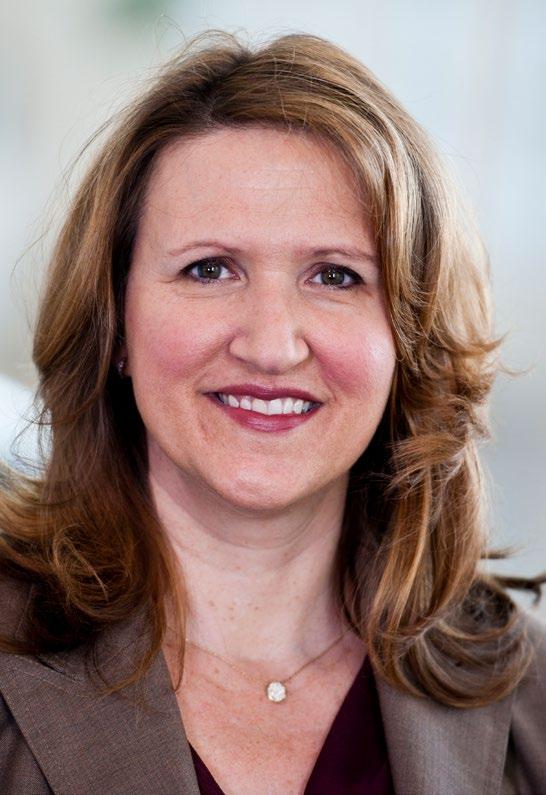
She is past president of the Wake County Women’s Center and the co-chair of Wake County Family Lawyers. She is also a member of the Wake County Volunteer Lawyers Program Advisory Board and cochair.
Of all Angel’s contributions, she is most proud of her work creating Project Together, a Wake County service that recruits and trains lawyers to serve as pro bono counsel for domestic violence victims.
“Twenty years later, it is still in place and serving the community,” she says.
She says if she were not practicing law, she would like to focus on climate change and sustainability, and she hints at a second career down the road.
“You never know,” she says. “It could be phase two.”
THE
Harvard Law School graduate, former Lehman Brothers investment banker and Wall Street securities lawyer, Tomomi Atamas is a skilled attorney who found her true calling after taking a break from her practice to care for her young twins.

It started when she received an unexpected call from a friend in desperate need.
“A fellow mom was threatened with losing custody of her four-year-old son,” Atamas recalls. “Over the next year, as I helped my friend through a contentious international divorce and eventually got her son back, I was inspired to change course to find deeper meaning in my law practice.”
Today, she is an associate at Smith Debnam in Raleigh where she helps people through their most challenging times
For Atamas, big success comes in small packages, like the 3-year-old daughter who was reunited with her father after a two-year court battle and many court orders against the defendant requiring her to allow her client custodial time.
“My client’s daughter was unjustifiably withheld from him for almost a year and a half,” Atamas says. “I had begun to lose faith in the justice system, when time and again, the defendant ignored the orders and managed to get away with it.
Finally, the little girl was physically back in her father’s custody.
“When my client told me he had his little girl back in his arms, it was an incredibly impactful moment for me,” Atamas says.
Atamas calls herself a perfectionist by nature, with hard work and discipline deeply ingrained her DNA.
“I seek to produce the highest quality work possible and perform at the highest level possible, for every client,” she says. “Although no lawyer can guarantee any particular outcome, what I guarantee my clients is 100% devotion to their case.”
If Atamas was not an attorney, she would like to be a musician, dancer or figure skater.
“Back when I had time for hobbies - before having three kids and a fulltime job, I spent a lot of time playing the violin and figure-skating,” she says. “Now I am counting on my daughters to fulfill those dreams for me.”
“My family is the single most important part of my life,” she says. “Growing up, I was acutely aware of how important family is.”
She grew up surrounded by her immediate and extended family every day, including holidays and vacations.
“When I started learning about domestic and family law, the guiding principle of working ‘in the best interests of the child’ felt natural and made sense to me,” she says. “I knew I would excel in an area of law that intrinsically felt right.”
After law school Miller worked at a prestigious family law firm in Charlotte. In 2012, she opened her family law firm, Miller Bowles Cushing, at the age of 29. For the last five years, she has served as a mediator to help resolve family law issues and completely dedicating her practice to helping families stay out of court.
“Opening my law firm just before I turned 30 felt pretty awesome, and watching it grow over the past decade has continued to fill me with a sense of success,” she says.
In addition to being a Certified Family Financial Mediator, Miller is a Certified Family Law Specialist. She says her curiosity is a catalyst for success.
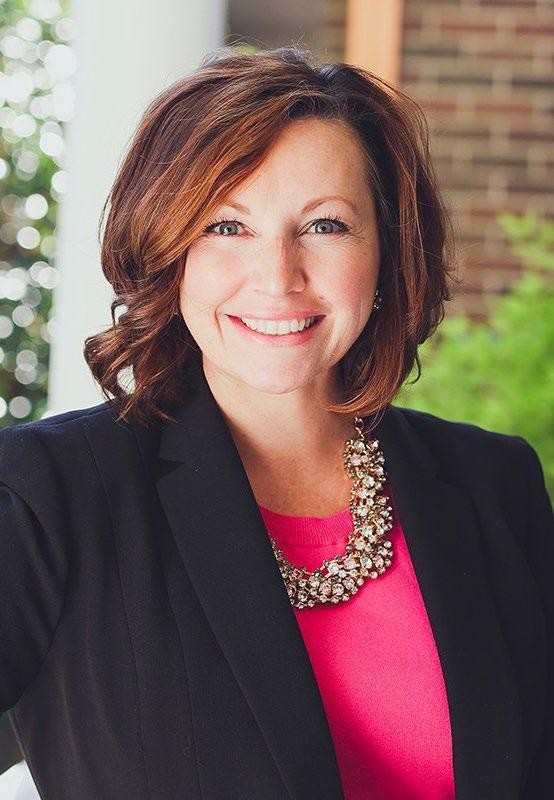
“I want to know all the things – everything about your family, all the parties involved, what makes everyone tick, and how certain options may play out 5, 10, or 15 years from now,” she says.
Active in professional and community organizations, Miller serves as a United Family Services, pro bono lawyer for victims of domestic violence. She is also a member of a variety of organizations including the International Academy of Collaborative Professionals and West Virginia Wesleyan College Alumni Counsel. She is a former recipient of the Safe Alliance Commitment to Justice Award.
She enjoys being with kids, making crafts and indulging in Pinterest so much that she believes if she were not an attorney, she likely would have become a preschool teacher.
As a ninth grader in his hometown of Laurinburg, Jonathan Breeden read “The Federalist Papers” in a civics class and was fascinated by the Founding Fathers’ concepts of democracy and government. From that point on, he made it his mission to becoming a lawyer.
In 2000, he opened the Breeden Law Office in Garner to serve clients in and around fast-growing Johnston and Harnett counties, focusing on criminal defense. Later, he broadened his scope to family law based on the demand from young families in the area who were heading for divorce.
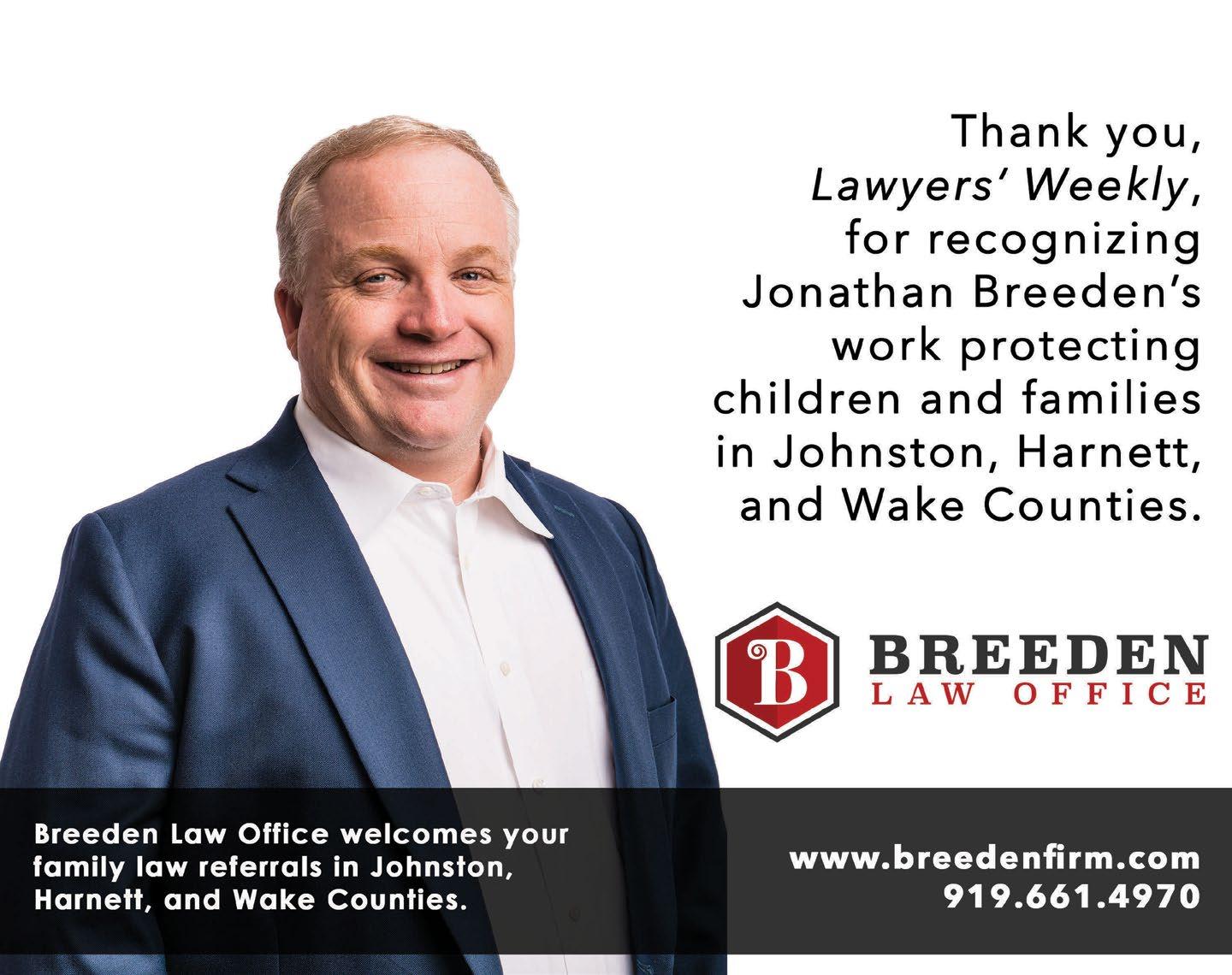
“I started with custody cases and simple divorces and found I really loved advocating for children in custody cases and helping get children out of situations that were not good for them and into much better situations,” he says. “Once you start helping children it is hard to stop.”
Over time, Breeden’s compassion for children has expanded into his role as a community leader in little league sports, the Greater Cleveland Athletic Association, and the Crossroads Civitan Club.
“I am passionate about children and will do anything in my power to make a child’s life better,” he says. “I am fortunate that I have found my life’s passion.”
As an attorney, Breeden has cultivated a reputation for sinking his teeth into a case and tenaciously fighting for the best outcome for his clients. It’s paying off.
In May 2022, Richard James Partners Club recognized him as an Entrepreneurial Attorney of the Year finalist for implementing process improvements in his practice, creating better client experience, starting with the initial consultation to case closure.

When not fighting for his clients or working for children in his community, Breeden is an avid sports fan who attends NCSU Wolfpack, Carolina Panthers, or Carolina Hurricanes games whenever he can.
Even if he were not a practicing attorney, he would not stray far from law.
“I would probably be a county manager or do something in public administration,” he says. “I love government and providing services to people, and that would be a great way to do both.”
In reflecting back on her top professional accomplishments, Joy Chappell recalls representing a wife and mother in a challenging custody dispute between a divorcing couple who lived in different states. From that experience, she learned how important it is for children to have both parents in their lives, she says.
“As long as they are fit and proper parents, it’s important for them to be present, even when distance divides them,” Chapel says. “Children thrive when they have both parents actively participating in their lives, and all parenting time is meaningful time.”
Prior to becoming a lawyer, Chappell was a paralegal for 13 years, and along the way she continued to expand her career, first by earning an MBA and then a law degree from the Charlotte School of Law. She is a partner at Stott, Hollowell, Windham & Stancil in Gastonia.

“I chose to practice family law because I truly care about people,” she says. “I enjoy helping people navigate through the difficult process of divorce, particularly when it involves children.”
In addition to her practice, Chappell is a volunteer attorney with the Gaston County Domestic Violence Legal Clinic through the Gaston County Sheriff’s Department and has also handled numerous pro bono cases with Legal Aid of Gastonia in family law-related matters.
She believes compassion is key to her success as a family law attorney.
“I believe my clients know that I care about them, I care about their cases, and I care about their families,” she says. “I have a great listening ear and in family law, the counseling aspect of being a lawyer truly applies.”
Chappell jokingly says that if she were not a lawyer, she might be a “professional panda handler,” caring for cuddly baby bears, but for now, she is fully committed to her practice as a family lawyer, especially helping kids who are impacted by divorce.
“Anytime I can assist divorcing couples in amicable co-parenting for their children’s sake, then I feel like that is a win for everyone involved,” she says.

Ronnie Crisco recalls the fear he felt as a child when he came across a copy of his parents’ separation agreement. In a video on his website, he describes what that feeling was like for him and how it charted the course for his adult life.
“It was crazy to think these things we call laws are invisible rules that are all around us and even as a kid, they can affect you,” he says. “I decided when I grew up, I was going to be the guy that knew that rule book from front to back.”
Today, as a partner at Arnold & Smith in Charlotte, he helps other people navigate those rules. While Crisco is a Certified Specialist in Family Law, he also oversees a strong general litigation and criminal defense practice.
Raised in Kannapolis, Crisco graduated magna cum laude from Duke University with a degree in Public Policy Studies in 2002. He received his law degree with honors from the University of North Carolina at Chapel Hill in 2005. While in law school, he competed nationally as a member of the UNC Mock Trial Team, assisted indigent clients through the UNC Civil Legal Assistance Clinic, and served as editor on the UNC Journal of Law and Technology.
In 2006, Crisco founded the Mooresville High School Mock Trial Team. Over the years, his teams have earned two regional championships, numerous individual awards and honors, and made three trips to the state finals.
Crisco is a past president, vice-president, and treasurer of the Judicial District 22-A Bar Association, covering Iredell and Alexander Counties. He is also a past chairman of the Exchange/SCAN Child & Parenting Center, now known as Pharos Parenting in Statesville, an organization that works with the Department of Social Services to protect abused and at-risk children. He serves as attorney advisor to the Board of Directors for Mooresville Youth Athletics, a non-profit youth sports league in Mooresville.
Crisco enjoys spending time with his two children, traveling, chasing waterfalls on mountain hikes and boating on Lake Norman.
Gray Ellis believes perspective is powerful in the practice of law, especially when it involves family issues such as divorce, child custody and support and end of life planning.
He believes his effectiveness on behalf of clients is due in part to his own personal experience as a parent who has gone through a separation.
“I feel my background makes me a more effective advocate on behalf of our clients and provides an extra layer of determination and understanding about exactly what they are going through when they hire our firm,” he writes on his firm’s website.
Founder and managing partner of Ellis Family Law, he has successfully represented individuals and families in their most important legal matters for more than 20 years. He is certified by the North Carolina Board of Legal Specialization.

He received a Bachelor of Science degree in political science from North Carolina State University and earned his law degree from North Carolina Central University School of Law.
Gray is also a believer in giving back to both the legal profession and broader communities his practice serves. In addition to chairing the Modern Family Committee of the North Carolina Family Bar, he is a board member of Meals on Wheels Durham and created the Feed the Need Gala, an annual event dedicated to raising awareness and funding to fight nutritional challenges among our elderly population.
He regularly speaks before the Self Help Divorce Clinic and the Equitable Distribution Clinic, and he is a guest lecturer at the UNC School of Women and Gender Studies, and the Duke University School of Law.
Marsha Kennedy says she is committed to not only helping individuals successfully navigate the divorce process, but also helping them rebuild and restore their lives.

“Helping people facing divorce is much more than a career to me,” she writes on her firm’s website. As a result of my own separation and divorce as well as helping several of my closest friends, I have become intensely interested and committed to improving the divorce process.”
Kennedy is managing partner of Kennedy Law Associates in Charlotte and an N.C. Certified Family Law Mediator.
Over the last seven years, she has been working with the Council for Children’s Rights, leading divorce workshops and helping individuals across Charlotte deal with the emotional and legal aspects of ending a marriage.
As a licensed Parent Coordinator, she helps individuals in high conflict divorce cases to work together and resolve conflicts in the best interest of their children.
“I help parents who are struggling work through the unavoidable conflicts that occur in parenting after separation and divorce,” she writes.
She is the author and leader of “Divorce With Dignity,” a series of divorce recovery workshops and seminars throughout the Charlotte area focusing on growth and healing. And she is at work on a set of seminar leadership materials and a book designed to help others lead workshops and further their healing journey.
Over the years, Kennedy has been recognized as one of the Mecklenburg Times’ 50 Most Influential Women of Charlotte, received a Commitment to Justice Award for Outstanding Contributions to the Legal Representations Project by Safealliance, and named as a Woman of Outstanding Leadership by the International Women’s Leadership Association.
She is a volunteer attorney for the Council for Children’s Rights and the United Family Services Legal Representation Project.
After watching her own parents struggle with navigating co-parenting after their divorce, Dana Lehnhardt resolved to pursue a career to help other families going through the same experience.
“I believed it was important to be a voice and an advocate for other divorcing parents,” she says.
Lehnhardt is managing partner of Lendhardt Price Family Law in Monroe, which she started in 2018 with her law partner, Jessica Price. She is a Certified Family Law Specialist and a Certified Family Financial Mediator.



“Our office has had the benefit of growth each year we have been in practice together, and we have had incredible support from our community and colleagues as we continue to grow,” she says. “I have the largest caseload I have ever had and there does not seem to be any slowdown as we head into 2023.”
Contributing to her success as a family attorney is the level of client trust she has earned over the years.





“My clients believe in what I am telling them even if they may not like my advice,” she says. “They know I am honest and straight-forward and looking out for their best interests.”
Among Lehnhardt’s most significant contributions are her donations of time, energy, and dollars to her community and many nonprofit boards throughout Union County and the surrounding area.

Her numerous roles include serving on the board of directors for the Union County Community Shelter. She coaches youth soccer and baseball and is co-commissioner of the local Monroe Youth Soccer Association.
Other organizations that benefit from her time and attention are the local Red Cross chapter, the Union County Literacy Council, Union County’s Women in Business, and the Union County Community Arts Council.

Lehnhardt says she loves the career she has built as an attorney, but if she had not pursued law, she might have gone to medical school.
“I had a professor In college who really wanted me to consider a career as a psychiatrist/ or psychology, and I may have done that,” she says.



After receiving a Master of Social Work degree, Nadia Margherio found her life’s passion as a social worker in the Office of the Public Defender, where she performed a variety of services geared toward helping children.
She believed she could do more to help them if she was the one representing them in court, so she enrolled in the University of South Carolina School of Law and became a lawyer.
“In my former role, I was an expert witness who recommended alternative treatment options for the juveniles we represented,” she says. “Serving others, and especially families and children, to the best of my ability was the passion behind my decision to enter law school and practice family law.”
There she found a perfect fit.
In addition to her work as a family attorney and principal at Sodoma Law in Charlotte, Margherio also serves as a Court Appointed Guardian ad Litem and is a licensed Parenting Coordinator.

She considers tenacity among her top skill sets for success.
“I am determined and persistent when it comes to advocating for my clients and their goals,” she says. “I think outside the box and find creative solutions to accomplish the tasks at hand, and I will not stop until I achieve the desired outcomes.”
An advocate for lifelong learning, Margherio has taught CLE courses on a variety of topics for both local and state bar programs, including at AFCC’s 50th Anniversary conference in Los Angeles.
Considered an authority on custody and co-parenting, she has been published in both local and regional publications and has received public recognition for her work.
Margherio says helping children is her passion and brings her joy, and if she were not practicing family law, she would use her Master of Social Work degree to provide mental health services to youth and young adults.
“For me, my biggest career success as an attorney is when I am able to reduce or maybe even completely eliminate the of conflict that a child is exposed to during a pending custody battle,” she says.
Motivated by the opportunity to help people live safer, happier lives, Jeff Marshall has devoted his career to family law, which he has been practicing for over 25 years.
Marshall is managing partner at Marshall & Turner in Raleigh. He is also a Certified Family Law Specialist and a Certified Family Financial Mediator.

“We focus on helping people at their worst, with the goal of having them leave in a better position and place than when they first hired us,” Marshall says. “We also use our resources to help remove individuals from dangerous situations.”
Marshall and his colleagues also focus on their most vulnerable clients–children.
“Kids can be in a tough situation and crafting ways to use our tools and skills to get the parents on track is one of our biggest challenges,” he says.
Born and raised in Rochester, N.Y., Marshall moved to North Carolina after receiving his law degree at Capital University in Columbus, Ohio. He launched The Marshall Law Firm in 1997 and formed Marshall & Taylor in 2002.
Among his many professional and community activities, Marshall serves on the advisory board and is the past president on the board of directors for The Child’s Advocate, a non-profit organization that ensures courts hear and understand a minor child’s opinions in custody cases.
Marshall believes the key to success as a lawyer is cultivating listening skills.
“I listen to my clients, and I don’t box them into a certain outcome,” he says. “I spend time striving to understand their goals and work hard to help my clients achieve them.”
Marshall is a principal in his law firm today, but when he was in college studying architecture, he doubted his ability to be a successful business owner, so he changed his career focus.
“Growing up in Rochester, everybody seemingly had a goal of working for Xerox or Kodak, and visions of being an entrepreneur were quickly dismissed,” he says.
Looking back, Marshall says if he had not become a lawyer, he might have pursued that career as an architect.
To frame her mission as an attorney, Angela McIlveen draws upon her own childhood experience with her parents’ divorce and custody battle when she was six years old.
On her website biography, she says she understands the way her parents’ divorce impacted her and how “growing up with dad when other kids didn’t grow up with their fathers shaped (her) life.”
As the CEO and co-founder of the McIlveen Family Law Firm, with offices in Charlotte, Gastonia and Raleigh, McIlveen is the driving force behind her firm’s growth. She practices with her husband and business partner, Sean McIlveen.
Rather than choosing family law, she believes the practice area chose her. She says she had tried other areas of law before becoming a family law attorney and through those experiences she found her passion for working with and for people. She also discovered a passion for trying cases and says her favorite place to be in in a courtroom.
McIlveen says resilience is the key to her success.
“To be a successful attorney you need to be able to bounce back from difficult days,” she said. “We all have bad days, and we all experience stress, but it’s how we deal with those bad days that define us.”
McIlveen believes the wins she has obtained for clients define her success as a lawyer. And as a business owner, she is proud of how her law practice has grown over the years and of the success her team experienced together.
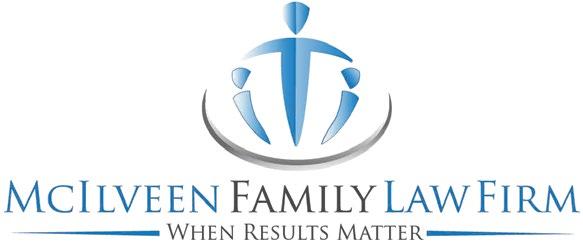



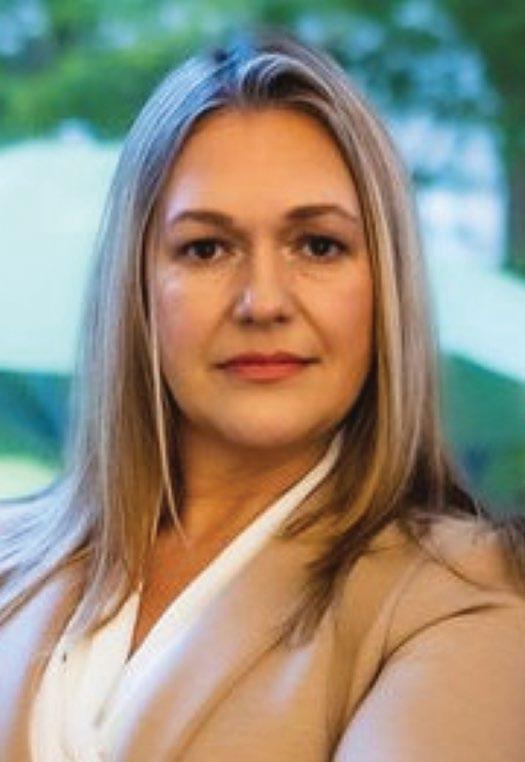
“As an individual, it’s always exciting to be recognized by my peers and colleagues for various awards,” she said.
In law, McIlveen chose a career that is a perfect fit and she can think of nothing she’d rather do professionally. Someday though, she hopes to retire to life in the country with a small farm and a vineyard.
“I grew up on a farm and I often feel the land is calling me,” she said. “If I can’t be in the courtroom, I want to be in my garden.”
As a partner with Montgomery Law in Cary, Scott Montgomery focuses his practice exclusively on family law. He enjoys helping his clients navigate a variety of legal matters including equitable distribution of marital property, divorce, child custody and support, and alimony, as well as adoption and various other legal issues arising from separation and divorce.
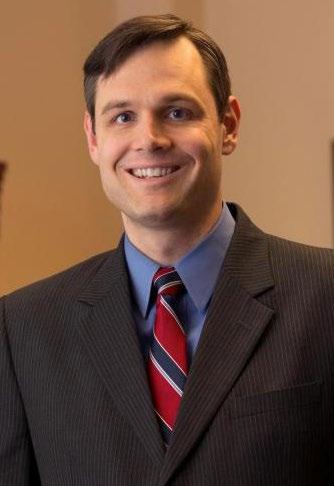
Born in Raleigh and raised in Cary, Montgomery graduated with honors from Wake Forest University in 2003 with a degree in psychology. He returned to WFU to attend law school, where he was awarded the American Academy of Matrimonial Lawyers Family Law Student Award in 2007.
During the summer of 2005, Montgomery clerked for the North Carolina Attorney General’s Office, then studied international law with the WFU Law School summer program in Venice, Italy.

He is a Certified Specialist in Family Law.
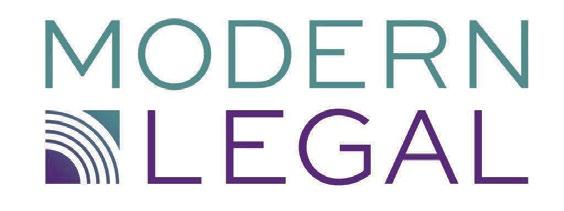
Montgomery is an active member of the Family Law Section of the N.C. Bar Association, serving as the section’s treasurer and its pro bono committee. He is also an active member of the Wake County Bar Association.
Montgomery enjoys spending time with his wife and colleague, family law attorney Lynn Montgomery, and their two children. He also likes to get out into nature, taking his family’s three dogs, Yogi, Puck, and Juno, on excursions at Jordan Lake. When he’s not working or spending time with his pets, he enjoys reading and boating.
Hosting a webinar is a powerful way to connect with your target audience,and with North Carolina Lawyers Weekly - you won’t have to worry about any of the logistics.
Whether you’re looking to move an in-person event online,or just need to generate quality sales leads,our team can help provide turnkey service from marketing to execution!
What is included in your webinar:
• 45-60 minute webinar
Kate Rech has parlayed her education and career into a dual profession as a Charlotte attorney who owns Rech Law and as the co-owner of Ollie Gray, a maternity and post-partum clothing line she founded with her husband Bryce.
On her firm’s website, Rech writes, “I have helped hundreds of clients through the tough times that almost always come along with family law issues. I believe in fighting hard for my clients and being there for them when they need me the most.”
She has both a Bachelor of Science degree in business administration and a Bachelor of Arts degree in Spanish from UNC-Charlotte. She earned her law degree from Charlotte School of Law where she was valedictorian. During college, she studied abroad in Sevilla, Spain and in Edinburgh, Scotland.
Before opening Rech Law in 2010, she was an attorney with Downer, Walters & Mitchener.
Rech says she chose the area of domestic law to make a direct and positive impact on people’s lives.
“I believe that helping provide a service to the community is not only a benefit to the public, but it is satisfying and rewarding for the practice and for me,” she writes.
Further, Rech writes that she believes in giving her clients realistic expectations, instead of telling them what they want to hear.
“To me, such a philosophy makes for more collaboration between the lawyer and the client, which ultimately makes a very difficult situation just a little better,” she writes.
Rech is former secretary of the N.C. Advocates for Justice and serves on the board of BraveWorks (formerly Fashion & Compassion), a Charlotte non-profit organization that provides opportunities for local women to earn income from jewelry they produce and maintains partnerships with artisans in other counties.
When Rech is not practicing law, she enjoys spending time with her family and traveling.
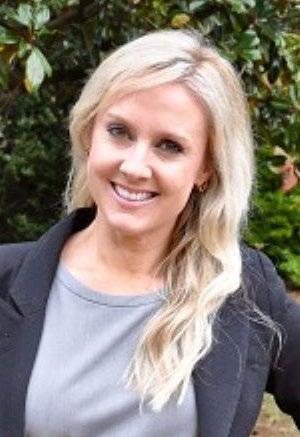
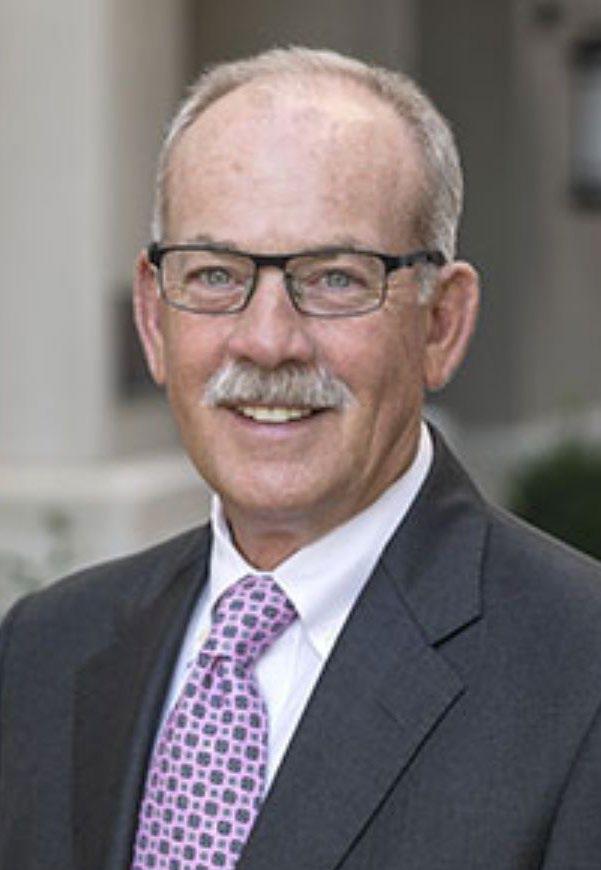
With a reputation as a skilled and empathetic mediator, Michael Schilawski also relies on his experience as an educator to cultivate relationships with his clients.
“In my career before law, I was a high school teacher and coach, and later a counselor and assistant principal,” he says. “Those ventures taught me great patience and listening skills, traits that served me well in my law practice, both in mediation and arbitration settings.”
A native of Marinette, Wis., Schilawski is a partner at Wake County Family Law Group in Raleigh. He is a Certified Specialist in Family Law and is also a Certified Family Financial Mediator. He has been a Fellow of the American Academy of Matrimonial Lawyers since 2004.
In addition to his bachelor’s degree, he has a master’s degree in education. He earned his law degree at Campbell University where he was editor-in-chief of the Campbell Law Review.
Schilawski’s entry into family law was serendipitous, starting at the beginning of his legal career.
“When I began practicing law, my law partner was devoted to real estate law, and I covered everything else,” he says. “After several years, the bulk of my work was in family law, and in 1989, I was among the first attorneys certified as North Carolina specialists in family law and soon my practice was limited to family law exclusively.”
In 2006, Schilawski was part of a group of attorneys who founded Wake County Family Law Group.
“The principals in the firm were certified specialists, and we established the firm as a group of talented and experienced lawyers,” he says. “It turned out to be a wonderful decision, both personally and professionally.
While it is true that Schilawski has found a professional role he is passionate about, he still thinks about what a different lifestyle would be like if he returned to his professional roots in education and recreation.
“If I were not a lawyer, I would be a teacher and coach during the school year and a flyfishing guide in the summer months,” he says.
Jim Siemens is known as a problem solver who focuses on building positive relationships with clients, colleagues, and judges. He owns Siemens Family Law Group in Asheville and is a Certified Family Law Specialist and a Family Financial Certified Mediator.

Siemens says he enjoys practicing family law for its intricacy, its requirement for emotional intelligence, and the need to attune, empathize, regulate, and focus.
“This area of law requires legal knowledge over a broad range of practice areas, including tax, real estate, estates, commercial transactions, business law and bankruptcy, not to mention law specific to marriage, separation, and divorce,” he says. “I’m drawn to the complexity and have a skillset that matches the intellectual and interpersonal challenges of the practice area.”
Early in his career, he honed his skills practicing criminal defense, including juvenile cases, in both state and federal courts. He attributes his success to his ability to cut through the details of a matter to find the truth.
“I’ve developed some self-awareness over my career as an attorney,” he says. “Once I perceive the truth and determine how it aligns with my client’s goals, I’m pretty dogged in pursuing that truth and achieving those goals.”
Siemens has also built a strong reputation as a trusted advocate, and he appreciates the positive feedback he receives from his clients.
“Your reputation is what your clients say it is,” he says. “My top professional success is found in each client relationship.”
In addition to Siemens’ law practice, he has started a life coaching practice for individuals going through divorce, a law related service he believes could help people.
Otherwise, if he was not a lawyer, he’d choose a profession that would align with his values and interest in serving others while allowing him to maintain a sense of autonomy.
He is already doing that on a small-scale by helping preserve and develop historic property in Asheville. He also serves on the board of Consider Haiti, an Asheville non-profit focused on promoting the health and wellbeing of Haitian children.
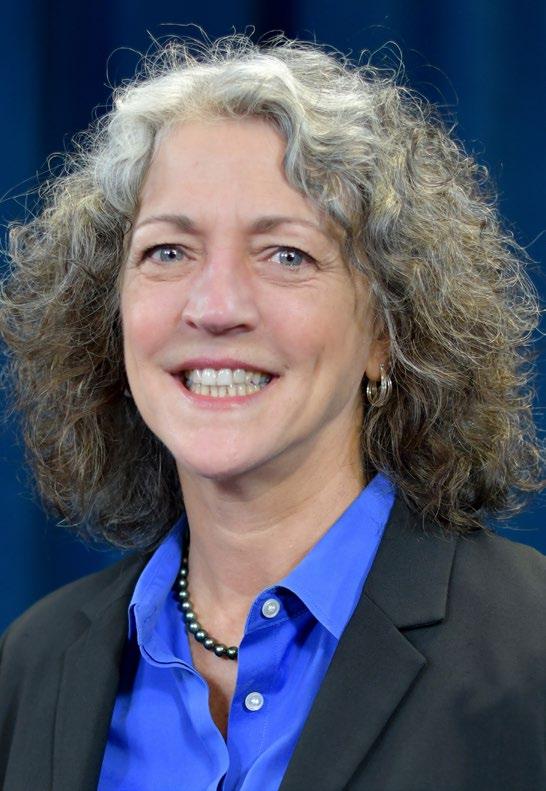
Today, she is a parent defender with the Office of Indigent Defense Services in Durham. The Office of the Parent Defender provides and promotes high quality legal representation
parents affected by the child welfare system. The office also handles the appeals in child welfare cases and assigns them to appellate attorneys.
Sotolongo started her career at Pisgah Legal Services, primarily helping victims of domestic violence obtain protection and custody orders. She moved into child welfare law after the Department of Social Services became involved in some of her clients’ lives. She learned how the court must balance the government’s interest in protecting children from harm with a parent’s constitutional right to preserve their family against a backdrop of poverty and trauma, the lack of affordable housing and other hardships.
“I became engrossed with the complexities of child welfare law, and I have been practicing in that area ever since,” she says.
In 2020, Sotolongo was appointed by the North Carolina State Bar Board of Legal Specialization to the Child Welfare Law specialty committee. Over the past two years, the specialty committee has drafted proposed standards, and administered its first certification exam.
“Having the State Bar recognize the expertise of lawyers who are dedicated to this area of practice has been very rewarding for me,” she says.
Sotolongo adds that throughout her career, she has worked for lawyers and organizations that have encouraged and allowed her to take a holistic, “big-picture” approach to her work.
When representing clients, that holistic approach means “providing effective courtroom representation and working with my clients outside of court on issues beyond their case,” she says.
“At IDS, it has meant developing partnerships with a wide variety of people and organizations to create changes to the child welfare system that preserve and protect families.”
Known as a hardworking attorney who fights zealously for her family law clients, Christine Sprow seeks out the best and most cost-effective way to resolve her clients’ legal issues. In 2018, she became the sole owner of Rice Law in Wilmington and is managing partner.
In a video posted on her firm’s website, Sprow speaks of following her grandfather’s footsteps into law
“Growing up, I always knew I wanted to be an attorney,” she says. “My grandfather was an attorney for a number of years, but mostly during my childhood, he was a law professor.”
She remembers learning how he taught his students to think like a lawyer.
“That really struck a chord with me,” she says.
She was drawn to family law as a student at Wake Forest University School of Law and after receiving her J.D., she moved to Wilmington where she started her career and grew to love everything about that area of practice. She enjoys working one-on-one with clients and helping them solve their problems. She especially enjoys to witnessing the resolution of their cases after all the hard work.
Sprow has also worked as an attorney at other law firms in the areas of family law, criminal defense and civil litigation.
In law school, Sprow interned for the Forsyth County District Attorney’s Office and McNaughton & Shelton of Winston-Salem.
Over the years, she has represented more than 500 clients primarily with family law related issues, criminal law matters, and juvenile matters.

When Sprow is not at work, she enjoys kayaking in area waterways and hunting for sharks’ teeth on local islands and beaches. She also enjoys crafting handbound leather journals and candles, sometimes selling them online or at local farmers’ markets.
Theresa Viera still remembers the day her mother took that first step to leave her abusive husband who was also Viera’s father.
“She took out the Yellow Pages and began calling the long list of law firms,” Viera says. “It was the assertive yet endearing voice of a family law attorney that would not only inspire confidence in my mother, but within me as well.”
Viera vowed to help other families in need and was the first in her family to become a lawyer. Today, she is the owner and a family law attorney at Modern Law in Charlotte, a firm she opened in 2020. She is also a Certified Family Financial Mediator.

Viera says she opened her firm to provide holistic expertise, while understanding unique family dynamics and using legal tools available in the judicial system.
“Opening my practice was not only a career choice, but rather a calling to create a different type of law firm designed to address many needs as our clients endure changes in their family dynamic and life,” she says. “I want to be an attorney for the whole family, and not just a divorce attorney.”
Viera attributes her success to her ability to relate and keep calm regardless of the storm facing her clients.
“We work with our clients when the days seem unbearable,” she says. “We take a deep breath together and consider the issues minute to minute until we can sustain the day-to-day, and we truly are in this together with each of our clients.”
When Viera was an undergraduate student at George Washington University, she studied political science and international affairs, and says if she were not an attorney, she likely would pursue a career in those fields. However, she admits her heart is with practicing family law.
“My childhood was riddled with yelling, crying, and physical abuse inflicted upon my mother, my older brother, and me from an abusive father,” she said. “I was inspired by the ways my mother’s attorney helped her, and simply put, I want to pay it forward.”
When Carolyn Woodruff is not practicing her craft across three disciplines – law, accounting and banking, you might find her gliding across the sky in a multi-engine private plane.

As the CEO of Woodruff Law Group in Greensboro, she is known as a visionary leader for her professional contributions and the impact she makes on her community.
She says her ability to strategize and communicate effectively is the key to her success.
“I am a strong organizer and thinker,” she says. “Once I have a strategic plan in place, I can add a creative ‘massage’ to achieve the best outcome.”
Woodruff, CPA, a Certified Family Law Specialist, and a Certified Valuation Analyst, was the first North Carolina female fellow of the American College of Tax Counsel. She is a director on the public board of Blue Ridge Bankshares where she chairs the Audit Committee and serves on the FinTech and Wealth Management Committees.

When Woodruff started practicing law, equitable distribution was new, and she found herself in an excellent position to become proficient in that area of law.
“I found I could use all my skill sets, including forensic accounting and business valuation ” she said. “Practicing family law also enables me to use creativity, and there is never a dull moment.”
For Woodruff, giving back to her community is one of her core values, and she focuses on local organizations that impact families and children including Family Service of the Piedmont, the Greensboro Foundation, the PTI Run on the Runway, and the Women’s Resource Center of Greensboro.
Of all her personal and professional successes, she is most proud of building a successful team at Woodruff Family Law Group, including five family law specialists.

Woodruff is an instrument-rated multi-engine airplane pilot, and says when she’s not working, she enjoys taking to the skies.
“When I did my biennial flight review, my instructor asked me if I would consider flying for a local wellknown charter company,” she says. “That was flattering, but I think I’ll stick with my law practice.”
ent an unworkable burden to future litigants challenging a trial court’s findings of fact.
In quoting the juvenile petition verbatim, the trial court based its reasoning in the adjudication order so heavily on information that was not presented to the trial court as evidence that the central logic of its position became compromised. This was reversible error, and I would remand for adequate factfinding.
In re J.N.J. (Lawyers Weekly No. 011-206-22, 47 pp.) (Darren Jackson, J.) (Hunter Murphy, J., dissenting) Appealed from Guilford County District Court (Marcus Shields, J.) Mercedes Chut for petitioner; Kimberly Connor Benton for respondent; Collier Marsh for guardian ad litem. 2022-NCCOA-785



In adjudicating newborn “Grace” neglected, the trial court properly declined to consider the respondentparents’ post-petition completion of a
parenting class, given that this was a discrete event. However, the court properly considered post-petition evidence of ongoing circumstances like the parents’ mental health and the condition of their home (i.e., holes in the floor that pre-existed the filing of the petition).
We affirm the trial court’s adjudication of Grace as neglected.
In re G.W. (Lawyers Weekly No. 011-207-22, 20 pp.) (April Wood, J.) Appealed from Stokes County District Court (Thomas Langan, J.) Sean Vitrano for respondent; Leslie Rawls for petitioner; James Freeman for guardian ad litem. 2022-NCCOA-784
Before the plaintiff-bank’s predecessor refinanced the defendanthomeowner’s first mortgage and paid off the holder of the first mortgage, a judgment lien had been recorded against the home. When the property was subsequently sold pursuant to a judgment execution sale, plaintiff’s lien was extinguished.

We reverse summary judgment for
plaintiff and remand for entry of summary judgment for defendants.





Defendant Brown bought the property in question in 2000, and lender First Horizon Home Loan Corporation recorded a deed of trust on the property. In 2014, a judgment lien was recorded, encumbering the property. In 2016, plaintiff’s predecessor refinanced Brown’s mortgage.
In 2019, the judgment creditor executed on its judgment. Brown’s daughter, defendant Anderson, was the high bidder and received a sheriff’s deed to the property. The trial court found that plaintiff retains its status as a first lienholder.



G.S. § 1-339.68(b) expressly provides that liens which exist prior to a lien of judgment under which an execution sale is held survive that sale and remain an encumbrance on the real property. The statute is silent on the status of liens that become effective after the lien of judgment under which an execution sale is held. However, applying the canon expressio unius est exclusio alterius (the expression of one thing is the exclusion of the other), we conclude that this

implied exclusion was intentional on the part of our Legislature. Therefore, liens that come to encumber a property after the lien of judgment under which an execution sale is held do not survive the sale and are extinguished.
Here, a judgment was entered against Brown in South Carolina on 21 January 2010. This judgment was domesticated in North Carolina and filed with the Office of the Clerk of Mecklenburg County on 15 July 2014. Plaintiff’s predecessor, Nationstar, filed its deed of trust in the Mecklenburg Register of Deeds on 16 August 2016.
The subject property was sold via execution sale pursuant to the 2010 judgment. Because the Nationstar deed of trust became effective as a lien on the property after the judgment under which the execution sale took place, it was extinguished by the sale.
The sheriff has no authority to subordinate one lien to another when conducting an execution sale. G.S. § 1- 339.68(b), not the sheriff’s deed, controls with respect to what encumbrances remain on the property.
662-1234. All inquiries held in the strictest confidence.
MartinandJones.com 800.662.1234
Even though Brown, in filling out the Nationstar loan documents in 2016, checked a box that indicated that no liens or judgments encumbered the property, plaintiff cannot rely on Brown’s statement to relieve it of the consequences of failing to identify a publicly available judgment. Equitable subrogation does not apply in this case.
Plaintiff has not brought a claim for fraud or for unjust enrichment against defendants, despite there being no apparent bar to it doing so at the time it filed its initial complaint. Plaintiff instead opted to pursue relief under a quiet title action and an equitable doctrine, which are not available to it on this particular set of facts.
Reversed and remanded.
Midfirst Bank v. Brown (Lawyers Weekly No. 011-209-22, 14 pp.) (Darren Jackson, J.) Appealed from Mecklenburg County Superior Court (Karen Eady-Williams, J.) Bonnie Keith Green and Wesley Deaton for defendants; Benjamin Leighton, Roy Michaux, Ryan Hoffman and David McAdams for plaintiff. 2022-NCCOA-788
Where G.S. § 58-44-16(f)(10) says an insurer may cancel fire insurance policies by “giving” written notice to the insured, all that is required is that the insurer mail notice of cancellation to the insured. No proof of receipt of the notice is required. Even though plaintiffs never received the notice of cancellation, since the defendant-insurer mailed notice of cancellation to plaintiffs, defendant effectively cancelled plaintiffs’ fire insurance policy prior to their home’s destruction by fire.
We affirm judgment for the defendant-insurer.
Section 58-44-16(f)(10) governs cancellation of standard fire insurance policies, providing that such policies “may be cancelled at any time by th[e] insurer by giving to the insured a five days’ written notice of cancellation[.]” Article 44 does not define what the word “giving” requires, so we look to the plain meaning of the term in order to ascertain the intent of the legislature.
A review of dictionary definitions of “give” convinces us that the plain meaning of the word “give,” particularly in its present participle form, includes the act of mailing notice of cancellation to the insured.
We note that the General Assembly requires that cancellation notice be sent via certified mail or actually received with respect to several different types of insurance policies but chose not to include those requirements here. Absent language in the statute requiring more, we conclude that the legislature intended mailing to constitute “giving” notice of cancellation.
G.S. § 58-41-10 is not applicable here. Section 58-41-10 outlines the scope of insurance policies governed under Article 41 and to which the cancellation provisions in G.S. § 5841-15 apply, stating, “This Article does not apply to insurance written under Articles 21, 26, 36, 37, 45 or 46 of this Chapter[ or to] insurance written for residential risks in conjunction with insurance written under Article 36 of this Chapter[.]” 11 N.C. Admin. Code 10.0313(a)
provides, “For the purposes of G.S. 58-41-10(a), a ‘residential risk’ is a risk covered under any of the following North Carolina Rate Bureau residential programs,” including the “Homeowners Program[ and the] Dwelling Fire and Extended Coverage Program[.]”
Plaintiffs’ insurance policy was written on a standard HO3 form, and the Rate Bureau Commissioner has approved the form under the Homeowner’s Program, which is authorized by Article 36. These statutory provisions along with the record clearly establish that plaintiffs’ policy was covered by Article 36, meaning the cancellation provisions in § 58-41-15 do not apply to the policy.
Lastly, it is a general rule of statutory construction that where one of two statutes might apply to the same situation, the statute which deals more directly and specifically with the situation controls over the statute of more general applicability. Article 36 specifically applies to “insurance against loss to residential real property with not more than four housing units located in this State[.]” § 58-36-1(3). Article 41 applies generally to a wide variety of policies, including property, liability, title, and indemnity insurance policies. § 58-41- 10(a). Accordingly, it is apparent that the legislature intended for Article 36 to apply to standard homeowner’s insurance policies.
Affirmed.
(Arrowood, J.) Because the term “giving” is ambiguous in this context, I would conclude the statute must be interpreted in favor of the insured and therefore require proof of delivery for a cancellation notice to be effective.
Ha v. Nationwide General Insurance Co. (Lawyers Weekly No. 011-210-22, 10 pp.) (Appealed from Wake County Superior Court (Rebecca Holt, J.) John Kirby for plaintiffs; Stephen Feldman, Travis Hinman and Garrett Steadman for defendant; Walter Brock and Angela Farag Craddock for amicus curiae. 2022-NCCOA-783
After a default judgment was entered against defendant, a writ of execution was issued. Before the judgment creditor made any attempt to satisfy the writ of execution, the trial court allowed the judgment creditor to initiate a supplemental proceeding: an ex parte order pursuant to G.S. §§ 1-358 and -360. Since the supplemental proceeding was directed at defendant’s property in the hands of a third party not a party to the suit, the trial court had subject matter jurisdiction over the supplemental proceeding, despite the lack of any prior attempt to satisfy the writ of execution.
We affirm the trial court’s order in aid of execution.
Sections 1-358 and -360 do not require a return of the execution unsatisfied prior to any supplemental proceeding. The trial court’s ex parte order was entered to prevent transfer of defendant’s property and/or funds by a financial institu-
tion, a third party with access to the property. Since the writ of execution was issued prior to the supplemental proceeding of an Ex Parte Order per Sections 1-358 and 1-360, we conclude the trial court had proper subject matter jurisdiction to grant the Order and such order was valid.
Defendant also challenges the trial court’s finding he failed to meet his burden of proof to claim exemption of his earnings for family purposes the 60 days prior to levy. We disagree.
G.S. § 1-362 explicitly requires exemption from execution or garnishment of the debtor’s earnings if the debtor shows by affidavit these “earnings are necessary for the use of a family supported wholly or partly by his labor.”
The trial court determined defendant failed to meet his burden of proof showing equitable reasons for exemption of any seized funds sixty days prior to levy, and that he failed to prove the seized funds were needed for family purposes under § 1-362. The trial judge explained defendant’s funds were commingled and used without “sufficient segregation” for business expenses, such as for taking clients to dinner and paying taxes.
Further, defendant’s spreadsheet in support of his affidavit included both business expenses and family expenses and did not distinguish between these expenses. Defendant testified that all expenses were family expenses since he is self-employed. Defendant testified he expended $15,000 per month in expenses, yet his wife claimed the family expenses were $6,000 per month.
Even after levying the total amount for satisfaction of the judgment, the joint bank account still held $38,461.54 from defendant’s deposits, not including the funds contributed by his wife. Accordingly, competent evidence supported the trial court’s finding that defendant failed to meet his burden of proof for exemption under § 1-362.
Affirmed.
Radiance Capital Receivables Twenty One, LLC v. Lancser (Lawyers Weekly No. 011-211-22, 16 pp.) (Fred Gore, J.) Appealed from Dare County Superior Court (Jerry Tillett, J.) Gregory Chocklett for plaintiff; Casey Varnell for defendant. 2022-NCCOA-789
Where the parties’ settlement agreement allowed either party to offer to buy certain real property by depositing $100,000 with the Chapel Hill branch of Investors Title by 5:00 p.m. on November 3, 2020, plaintiffs did not fully comply with the agreement when their counsel placed a trust account check for $100,000 in the mail, addressed to Investors Title, on November 3, 2020.
We affirm the trial court’s ruling that plaintiffs neither fully complied with nor substantially performed under the terms of the settlement agreement.
The term “deposit with” as used in the agreement’s term “deposit . . . with Investor’s Title” is not defined in the agreement. The verb “deposit”1 is defined as “[t]he act of
giving money or other property to another who promises to preserve it or to use it and return it in kind; esp., the act of placing money in a bank for safety and convenience.” Deposit, Black’s Law Dictionary (11th ed. 2019). The preposition “with” is generally defined as “in the care, guidance, or possession of[.]” Webster’s Third New International Dictionary 2626 (2002).
Taken together, the term “deposit with” means “giving or placing in the care, guidance, or possession of.” Accordingly, the agreement required plaintiffs, as the offering party, to give or place the earnest money in the care, guidance, or possession of Investors Title Insurance Company–Chapel Hill Branch at the same time they submitted their Initial offer to defendant, and no later than “5 pm EST on November 3, 2020[,]” when the agreement expired.
By placing the earnest money check drawn on plaintiffs’ counsel’s trust account into the mail on 3 November 2020 around 4:00 p.m., plaintiffs did not give or place a non-refundable earnest money deposit in the amount of $100,000 in the care, guidance, or possession of Investors Title Insurance Company–Chapel Hill Branch at the same time they submitted their initial offer to defendant and before the expiration of the agreement “at 5 pm EST on November 3, 2020.” Accordingly, plaintiffs failed to fully comply with the agreement.
Plaintiffs also argue that they substantially performed under the agreement; however, a “time is of the essence” clause makes completion dates and times a material term of a contract, causing a material breach if performance is late. The doctrine of substantial performance traditionally has not applied where the parties, by the terms of their agreement, make it clear that only strict or complete performance will be satisfactory.
Here, the agreement includes a “time is of the essence” provision, making the time for depositing a non-refundable $100,000 earnest money deposit with Investors Title and the time for the expiration of the agreement material terms of the agreement. Accordingly, the parties made it clear by the terms of their agreement that only strict or complete performance would be satisfactory, so the doctrine of substantial performance does not apply.
Even if the substantial performance doctrine did apply, it would not excuse plaintiffs’ breach in this case. Although plaintiffs’ counsel mailed the check on 3 November 2020, Investors Title did not receive it until 16 November 2020, 13 days after the expiration of the agreement. As no portion of the earnest money was deposited with Investors Title prior to the expiration of the agreement, plaintiffs did not perform at all, much less substantially perform, under the agreement.
Affirmed.
Ricky Spoon Builders, Inc. v. EmGee LLC (Lawyers Weekly No. 011-212-22, 13 pp.) (Allegra Collins, J.) Appealed from Chatham County Superior Court (Alyson Adams Grine, J.) Donald Harris for plaintiffs; Charles George and Mary Kate Gladstone for defendant. 2022-NCCOA-790